-
Russia admitted its 'peace memorandum' is an ultimatum Kyiv won't accept, Zelensky says
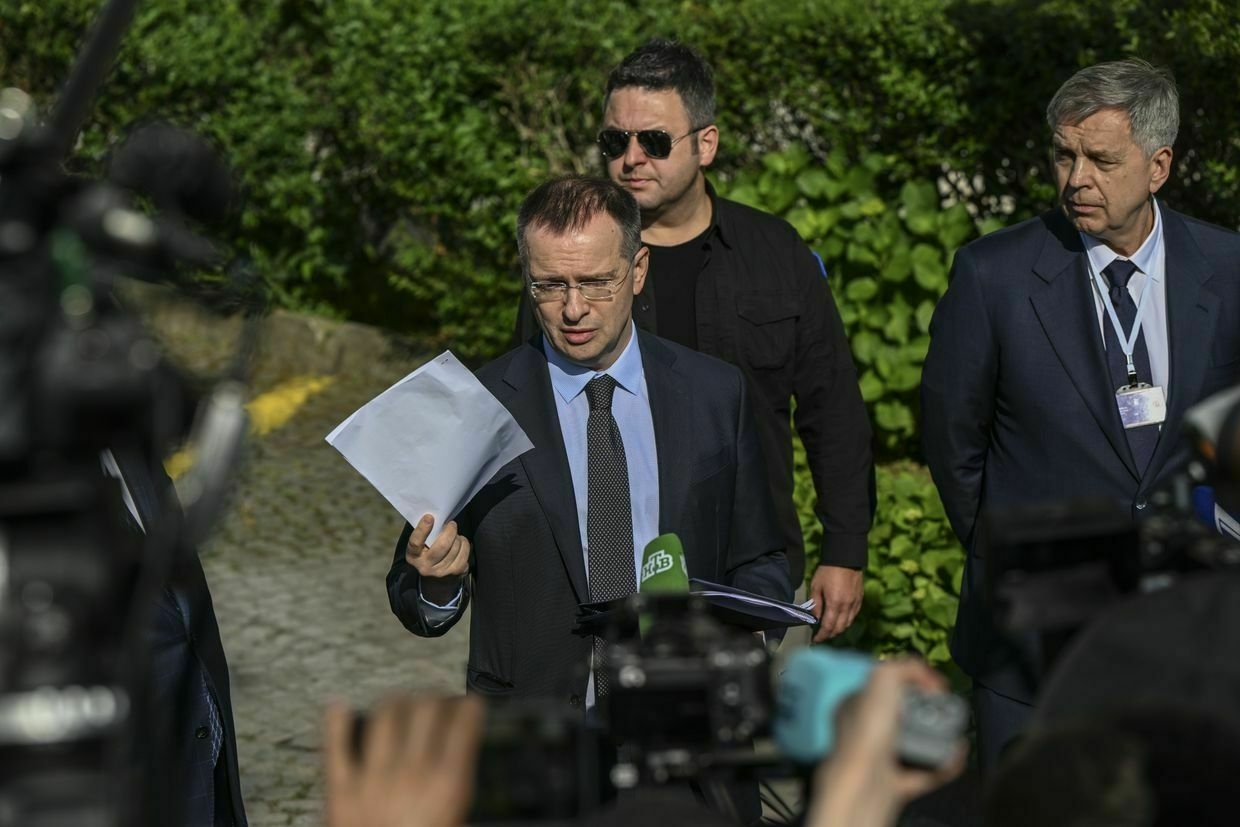
Russian negotiators told the Ukrainian delegation directly that their so-called “peace memorandum” is an ultimatum Kyiv cannot accept, President Volodymyr Zelensky said in an interview with Hungarian news outlet Valasz Online published on June 10.
“They even told our delegation: we know that our memorandum is an ultimatum, and you will not accept it,” Zelensky said. “Thus, the question is not the quality of the Istanbul format, but what to do about the Russians' lies."
Zelensky said Russia’s goal is to erode Western support for Ukraine and prolong negotiations while continuing military aggression.
The remarks follow the second round of direct peace talks in Istanbul on June 2, where the Kremlin submitted its memorandum listing conditions for a ceasefire.
According to Zelensky, the Ukrainian delegation in Istanbul had a mandate to negotiate humanitarian matters such as a ceasefire, prisoner exchanges, and the return of abducted children — but not the country’s sovereignty or territorial integrity.
“This is our own constitutional matter. It is my job to hold talks on territories — and (Russian President Vladimir) Putin’s, who seized them. I will not discuss my position on this with anyone else,” Zelensky said.
Russia’s so-called “peace memorandum” demands that Ukraine recognize Russia’s annexation of Crimea, as well as Kherson, Donetsk, Zaporizhzhia, and Luhansk oblasts — none of which are fully under Moscow’s control.
The Kremlin also insists on Ukraine's complete military withdrawal from these regions. Zelensky reaffirmed Ukraine's refusal to concede any occupied territory.
"We have also said repeatedly that if we receive adequate security guarantees preventing Putin from continuing the war, then we will have time to decide on territorial issues. By diplomatic means, not with weapons," he said.
Other Russian demands include Ukrainian neutrality, ending foreign military assistance, recognizing Russian as an official language, granting amnesty for pro-Russian collaborators, and prohibiting foreign troops, contradicting EU-backed peacekeeping proposals.
Ukraine's counterproposal in Istanbul included an all-for-all prisoner swap, the return of Ukrainian children abducted by Russia, the release of all civilians held in captivity, and freedom to pursue EU and NATO membership.
Kyiv also proposed using frozen Russian assets for reconstruction and said it would consider lifting certain sanctions if a ceasefire is achieved.
While no ceasefire or political breakthrough was achieved, negotiations resulted in key humanitarian agreements, including commitments to exchange prisoners of war (POWs) and the bodies of fallen soldiers.
As Ukraine and the U.S. continue to push for an unconditional ceasefire, Russia has maintained maximalist demands and rejected all such proposals.
U.S. President Donald Trump has reportedly expressed frustration with Moscow's intransigence and growing violence but has yet to impose any new sanctions on Russia.
In one of largest attacks on Ukraine’s capital, Russian barrage hits Kyiv, Odesa, kills 3, injures 12In the early hours of June 10, Kyiv and Odesa came under another mass Russian attack, involving ballistic missiles and drones.The Kyiv IndependentOlena Goncharova
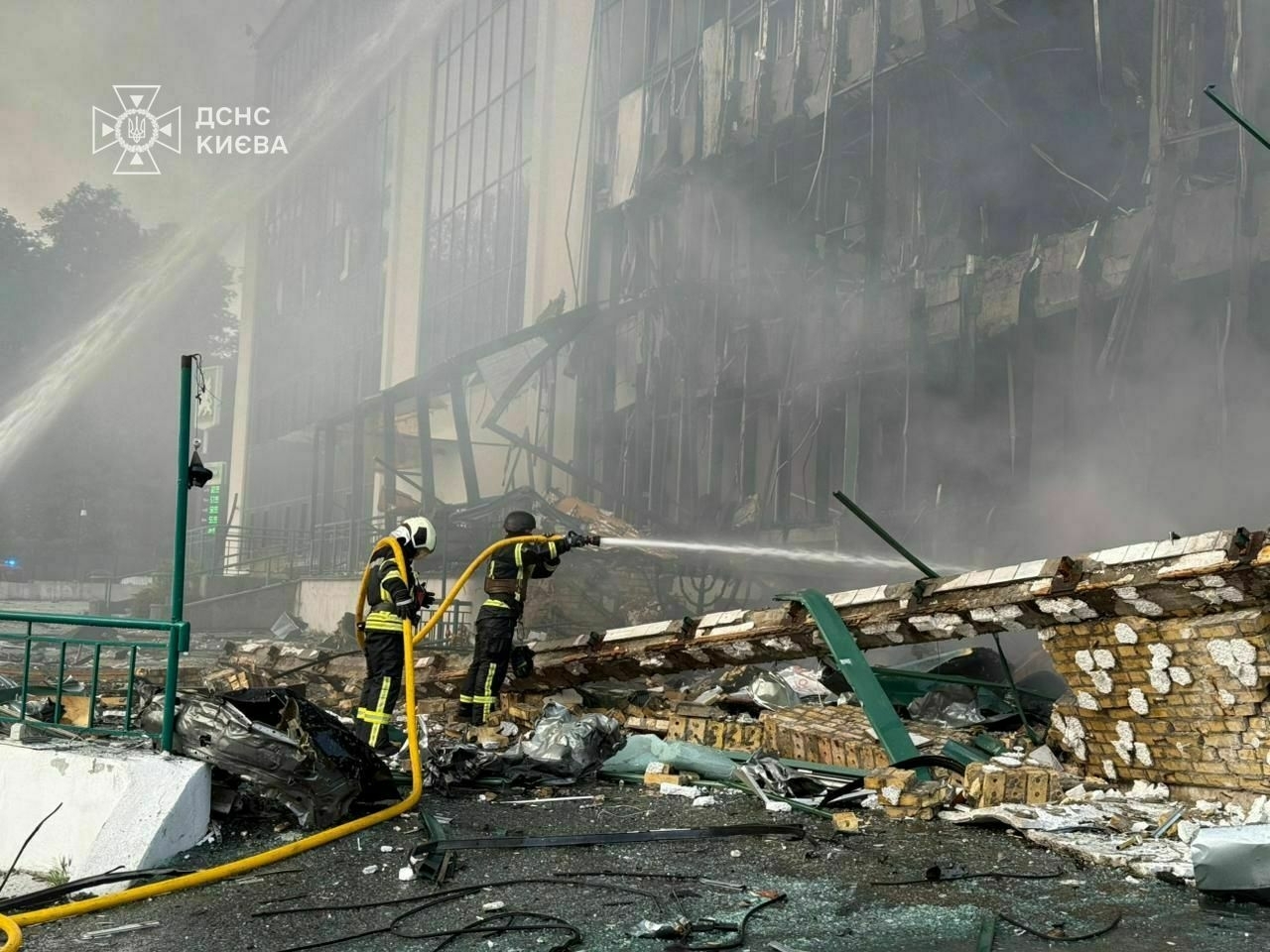
-
Western firms reportedly paid at least $46 billion in taxes to Russia amid full-scale war in Ukraine
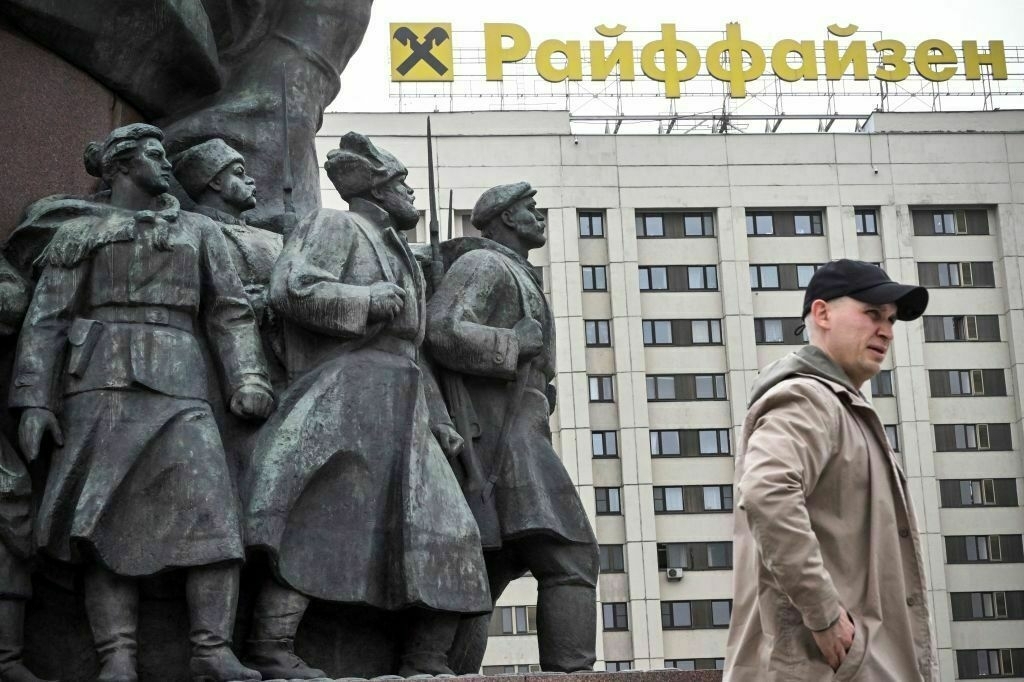
Western companies have paid at least 40 billion euros ($46 billion) in taxes to Russia over the past three years, according to an investigation by investigative outlet Follow the Money published on June 10.
This figure represents almost one-third of Russia’s defense budget for 2025.
Seventeen of the 20 largest foreign corporate taxpayers in Russia come from G7 and EU countries, Ukraine’s main international supporters, the investigative outlet wrote, citing an earlier report by the Kyiv School of Economics (KSE) and the B4Ukraine association.
Foreign firms still operating in Russia represent a crucial lifeline for Russia’s war chest amid Western sanctions and skyrocketing war expenditures.
Earlier reports by KSE said that only 472 of over 4,000 foreign companies have withdrawn from Russia after the outbreak of the full-scale war in Ukraine in 2022, while 1,360 have scaled down their operations.
Austrian bank Raiffeisen remains the largest European payer of corporate taxes in Russia, with 457 million euros ($522 million) paid only in 2023. In total, U.S. companies generated the greatest revenues for Russia, followed by German commercial entities.
Philip Morris tobacco company, PepsiCo, UniCredit Bank, Mars, and other Western business giants have also continued filling Russian coffers, even though Western governments have donated some $170 billion in military aid to Ukraine to face Russian aggression, according to the investigation.
The firms provided various explanations for their continued presence in Russia. Some argued that their products are essential for Russian consumers, while others cited concern for the safety of their employees, the outlet reported.
Follow the Money also noted that Russia makes it difficult for companies to exit its market, for example, by allowing them to sell their assets only at extremely low prices. Russia has also previously directly seized assets of some companies that had remained in the country.
Companies that have decided to leave the market reportedly had to pay over $170 billion in write-offs and exit taxes.
Russian President Vladimir Putin called for punitive action against Western companies still operating in Russia, saying they must be “strangled” in response to what he described as Western attempts to suffocate the Russian economy.
Despite the rhetoric, Russia continues to explore paths for re-engagement with foreign businesses. In February, Putin instructed his government to prepare for the eventual return of Western firms.
Still, no formal requests have been received from companies seeking re-entry, according to Dmitry Medvedev, deputy chairman of Russia’s Security Council and former president.
Key to Russia’s potential defeat lies in its economyAs the war in Ukraine grinds on, attention remains fixed on the battlefield. But Russia’s most vulnerable flank is not in the trenches — it’s in the treasury. The West, and especially the United States, holds economic levers that could push Vladimir Putin toward serious negotiations or even collapseThe Kyiv IndependentWojciech Jakóbik

-
Israeli Foreign Ministry denies sending Patriot systems to Ukraine amid conflicting claims
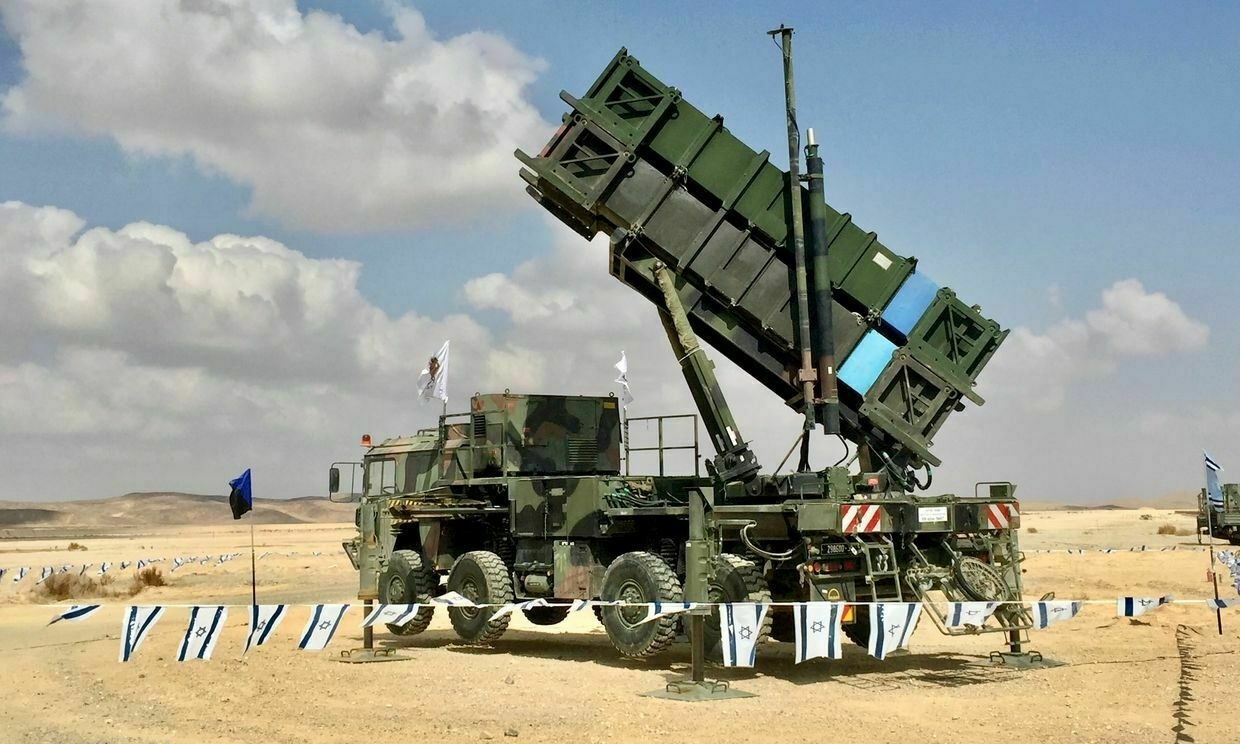
Israel has not transferred any Patriot air defense systems to Ukraine, the Israeli Foreign Ministry told Israeli news outlet Ynet on June 10, refuting earlier claims made by its own ambassador in Kyiv.
"Israel has not transferred such systems to Ukraine," the Israeli Foreign Ministry told Ynet in a statement.
The denial contrasts with statements made by Israeli Ambassador to Ukraine Michael Brodsky, who said in a recent interview that Israel had agreed to transfer retired Patriot missile systems — originally supplied by the U.S. in the 1990s — to Ukraine.
“The Patriot systems that we once received from the United States are now in Ukraine,” Brodsky said in an interview with Ukrainian blogger Marichka Dovbenko. “When people say that Israel did not help militarily, that is not true."
Kyiv has consistently pressed Western partners to bolster Ukraine’s air defenses, warning that its current capabilities are insufficient to counter the scale of Russian missile and drone assaults.
The Patriot system, a U.S.-made surface-to-air missile platform, is widely recognized for its high-precision detection, tracking, and interception of aircraft, cruise, and ballistic missiles.
Ukrainian Foreign Ministry spokesperson Heorhii Tykhyi has neither confirmed nor denied the delivery of Israeli Patriots to Ukraine.
“We welcome signals from Israel about its readiness to provide military assistance,” Tykhyi said at a press briefing.
The Kyiv Independent contacted the Israeli Embassy in Ukraine, the Israeli Foreign Ministry, and Ukraine's Presidential Office for comments but has yet to receive a response.
According to a May 4 reporting by the New York Times, which cited four current and former U.S. officials, at least one Patriot system that was previously deployed in Israel will be refurbished and sent to Ukraine.
It remains unclear what U.S. President Donald Trump's stance is on the decision or whether the move was initiated before he took office, during former President Joe Biden's administration.
President Volodymyr Zelensky has repeatedly underscored Kyiv's urgent need for more air defenses. Speaking to CBS News in April, he said Ukraine is prepared to buy 10 Patriot batteries for $15 billion to protect densely populated areas.
"We will find the money and pay for everything," Zelensky said, emphasizing Ukraine's intention to buy additional systems, rather than requesting them for free.
Despite Kyiv's appeals, Trump dismissed the request on April 14, accusing Zelensky of "always looking to purchase missiles."
Russia has carried out near-nightly aerial assaults in recent weeks. On June 9, Ukraine's Air Force said Russia launched 499 aerial weapons in a record overnight attack.
Ukraine has expressed solidarity with Israel following the deadly Hamas terrorist attack on October 7, 2023, condemning the violence and affirming its support for Israel's right to defend itself.
In one of largest attacks on Ukraine’s capital, Russian barrage hits Kyiv, Odesa, kills 3, injures 12In the early hours of June 10, Kyiv and Odesa came under another mass Russian attack, involving ballistic missiles and drones.The Kyiv IndependentOlena Goncharova
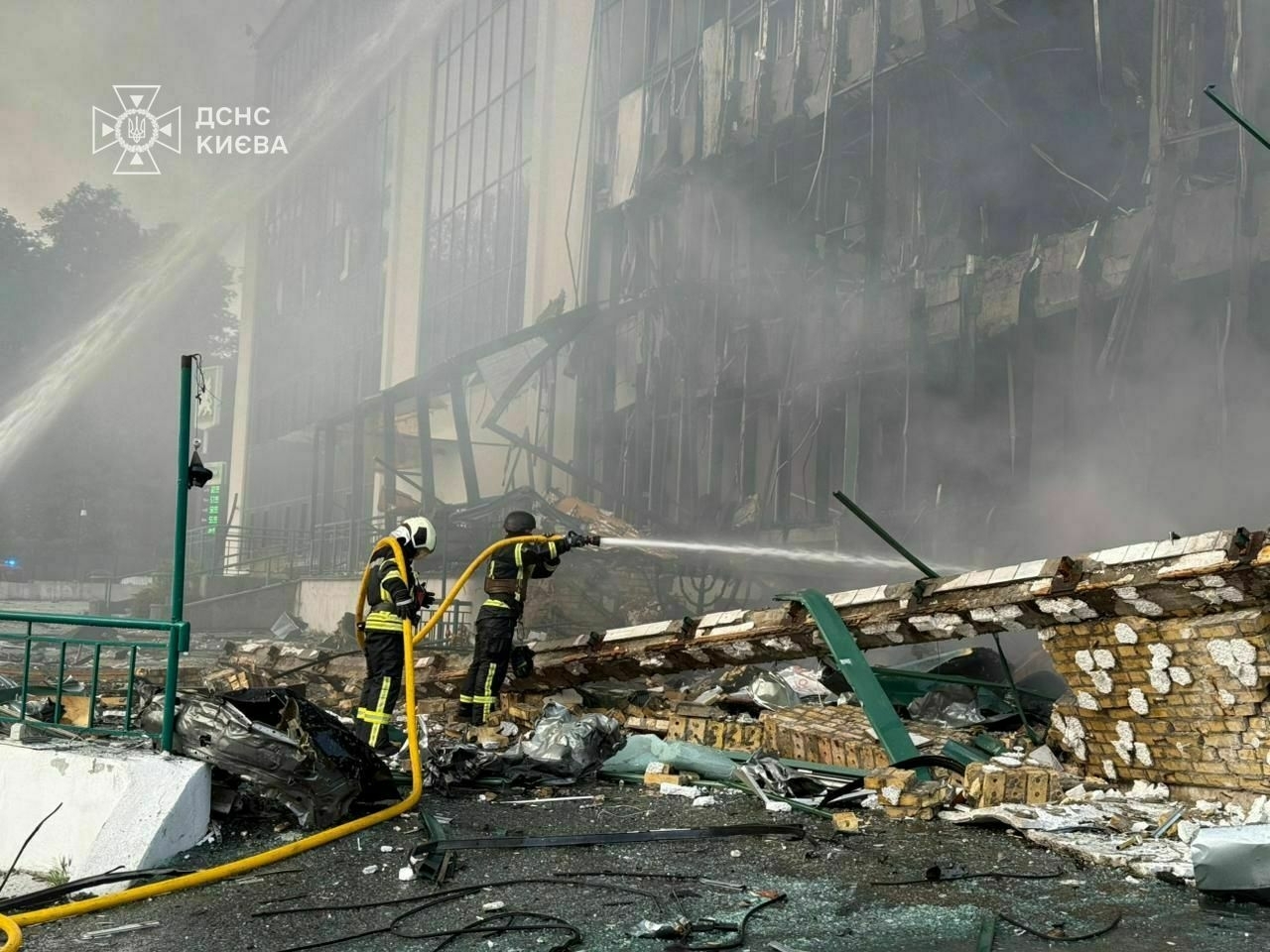
-
Over 40% of Ukrainians willing to compromise on 'de facto' recognition of Russian occupation for peace, poll shows
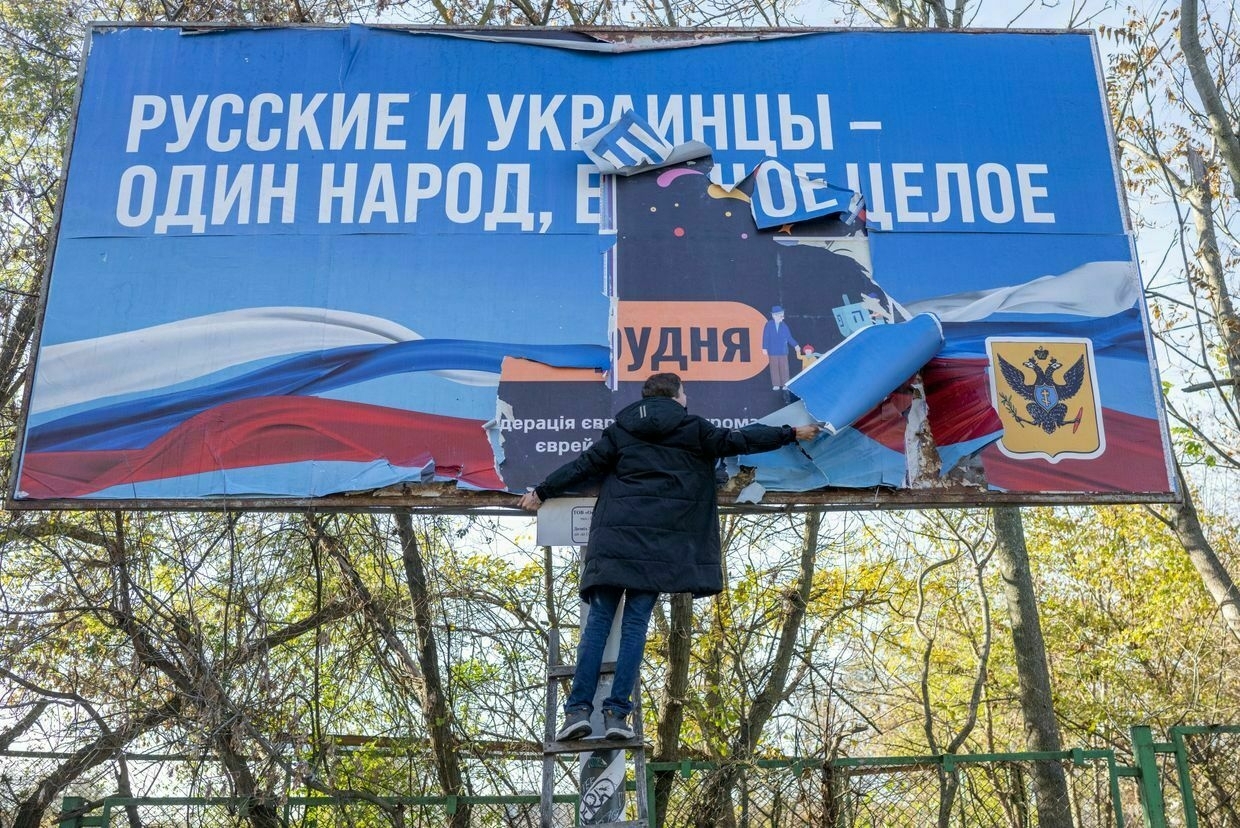
Some 48% of Ukrainians “categorically” oppose even a de facto recognition of Russian control of the occupied Ukrainian territories to achieve peace, according to a poll by the Kyiv International Institute of Sociology (KIIS) published on June 10.
In turn, 43% of respondents said they would be willing to make the concession to reach a peace deal with Moscow, provided it does not include a formal, or de jure, recognition of the Russian control.
The news comes as Russia continues to push for territorial concessions from Ukraine as part of the ongoing peace talks.
The survey suggests that Ukrainians are even less ready to accept a de jure recognition of the Russian occupation – 68% of respondents said they are categorically against such a step, while 24% were open to it.
The strongest opposition – 78% – was against handing over control of Ukrainian territories that Russia does not currently occupy. Only 15% of respondents were willing to make that compromise.
Russia currently occupies roughly 20% of Ukraine’s territory. This includes the whole of Crimea occupied in 2014 and large parts of the Donetsk, Luhansk, Zaporizhzhia, and Kherson oblasts.
Moscow illegally declared the annexation of the latter four regions in 2022 and insists on Ukraine’s full withdrawal from them as part of a peace deal, even though it does not control them completely.
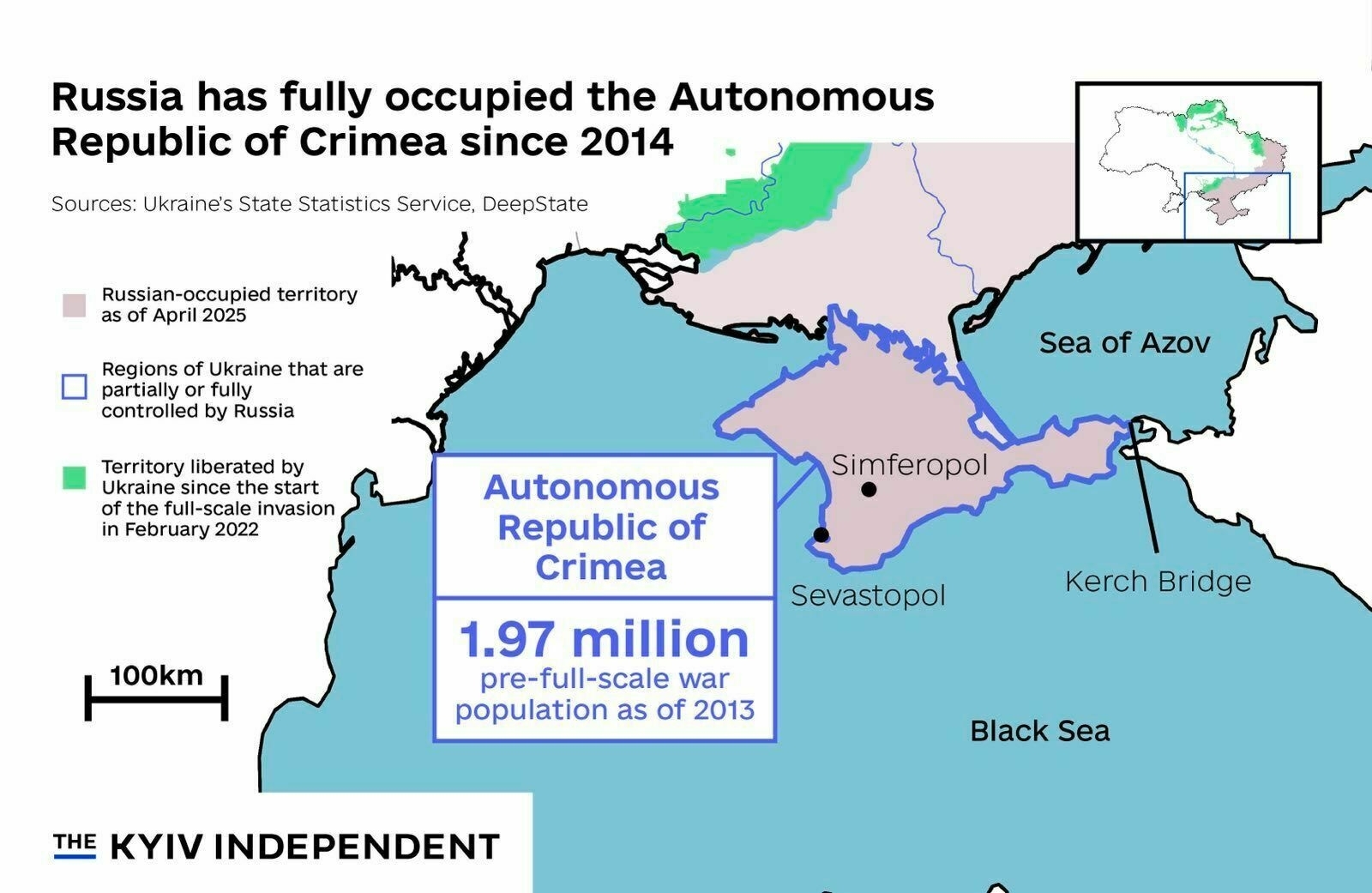
A map of Russian-occupied Crimea. (The Kyiv Independent) 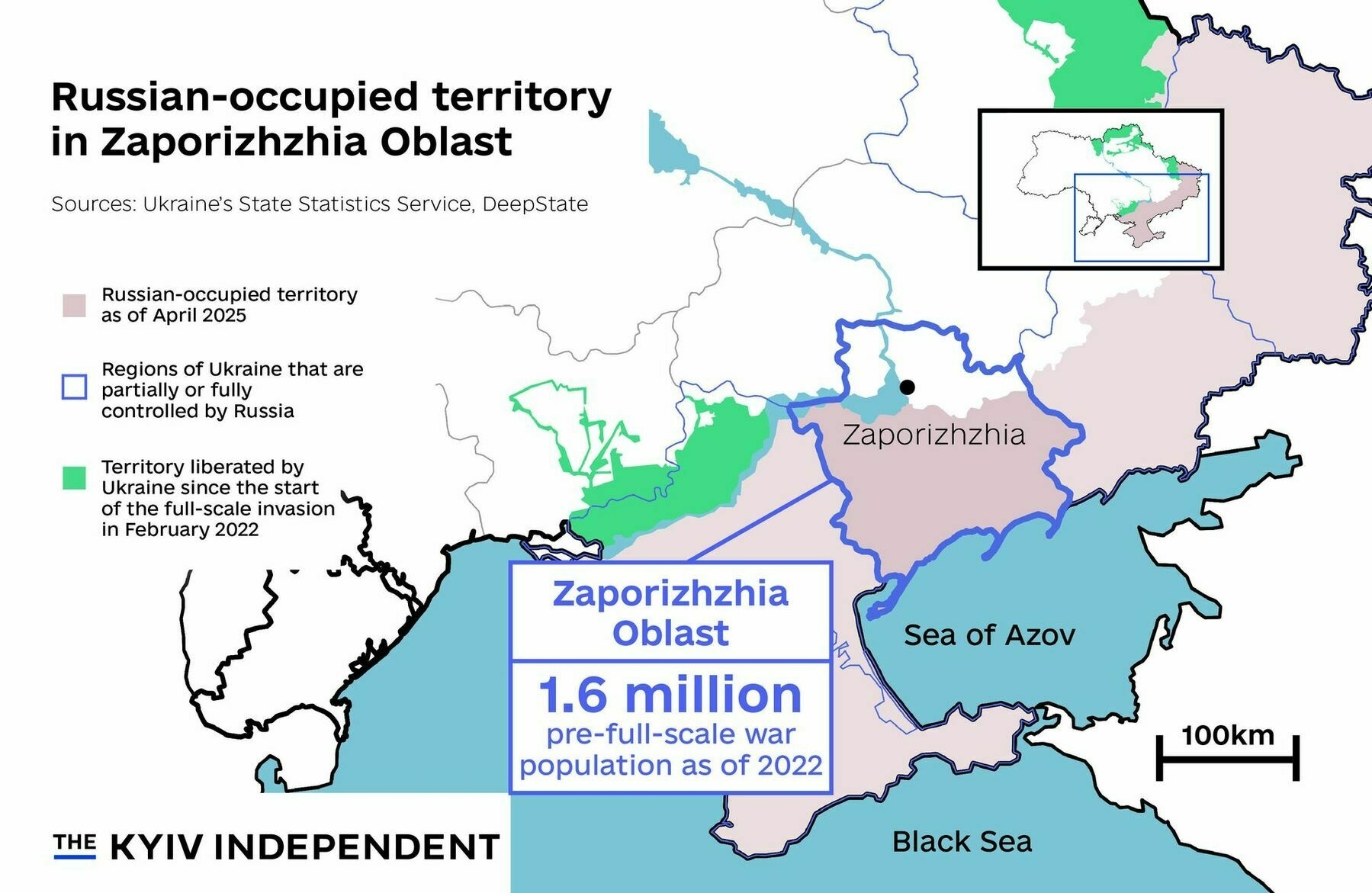
A map showing Russian-occupied parts of Ukraine’s Zaporizhzhia Oblast as of 2025. (The Kyiv Independent) 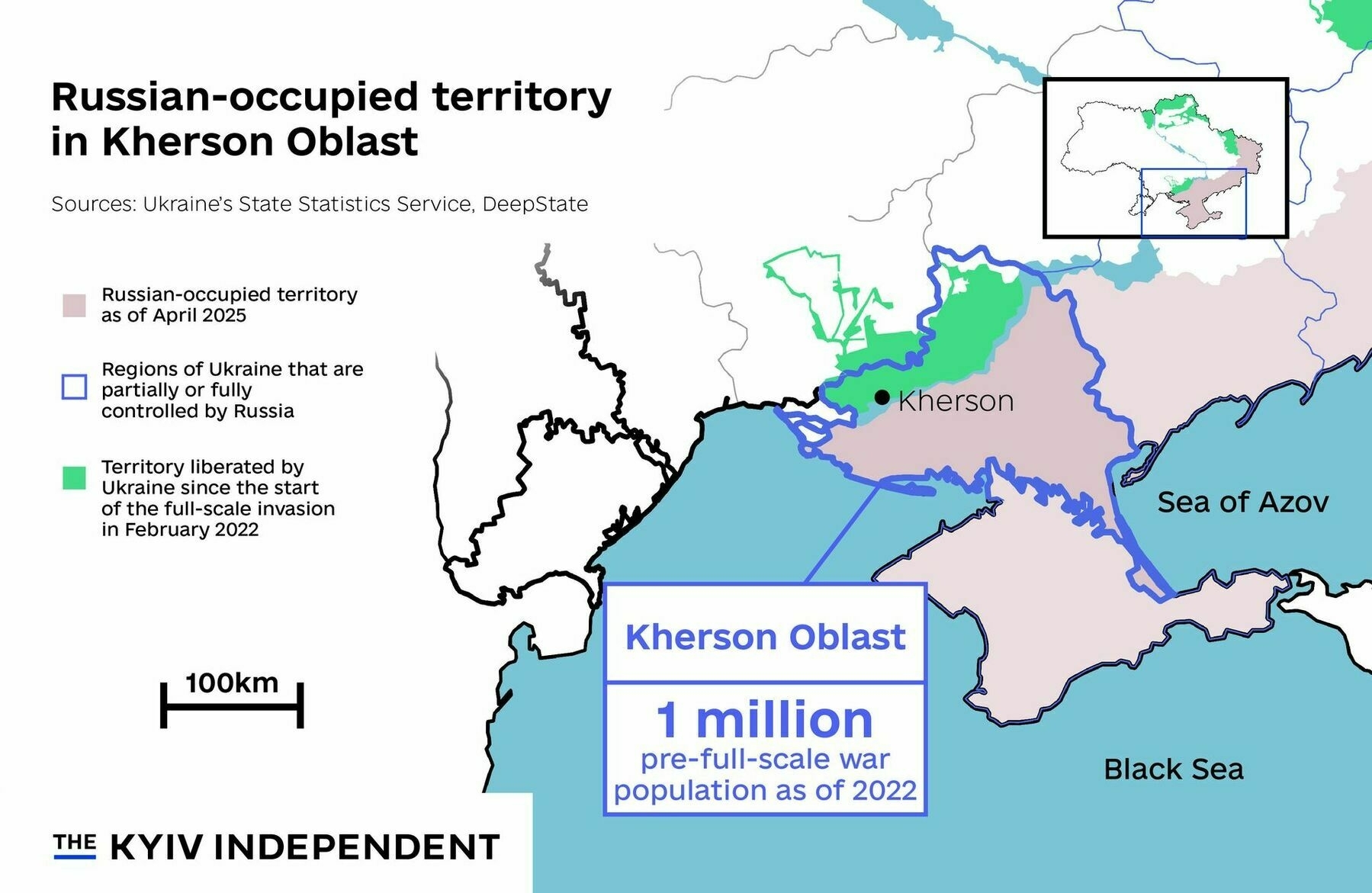
A map showing Russian-occupied parts of Ukraine’s Kherson Oblast as of 2025. (The Kyiv Independent) 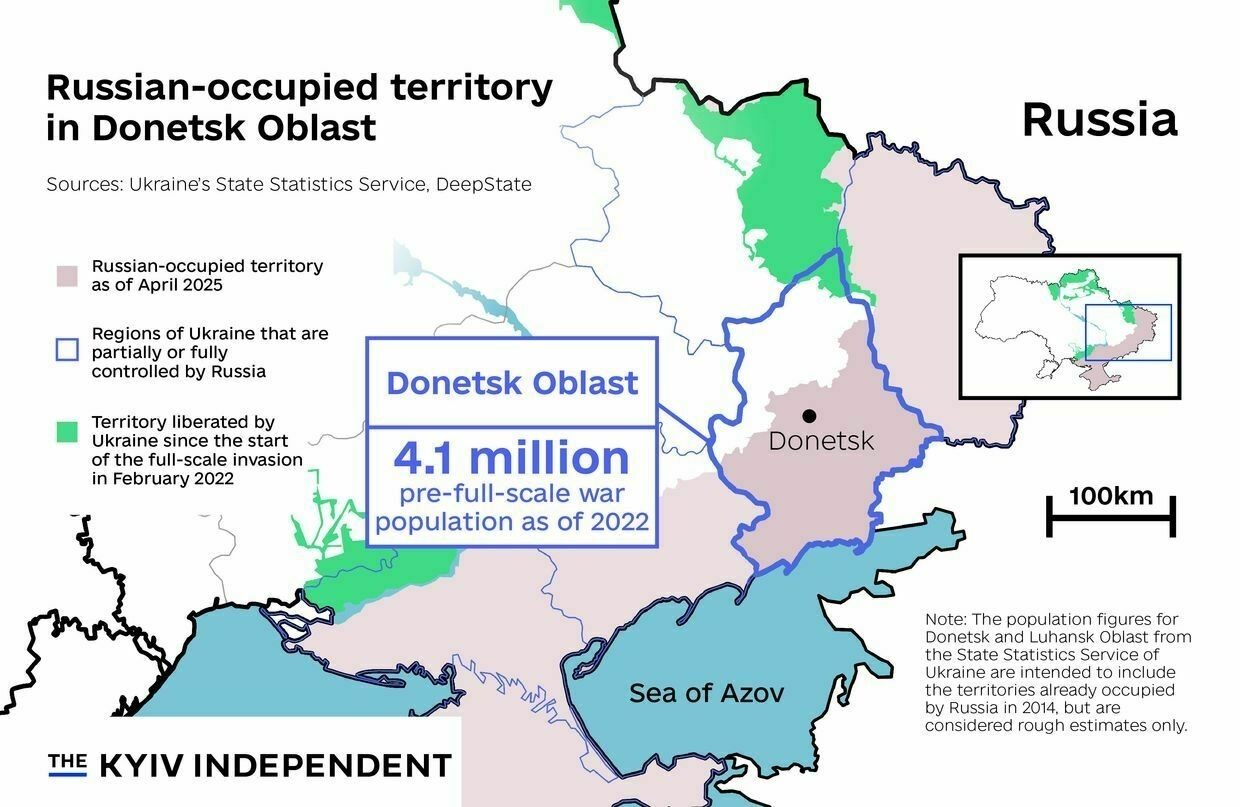
A map showing Russian-occupied parts of Ukraine’s Donetsk Oblast as of 2025. (The Kyiv Independent) 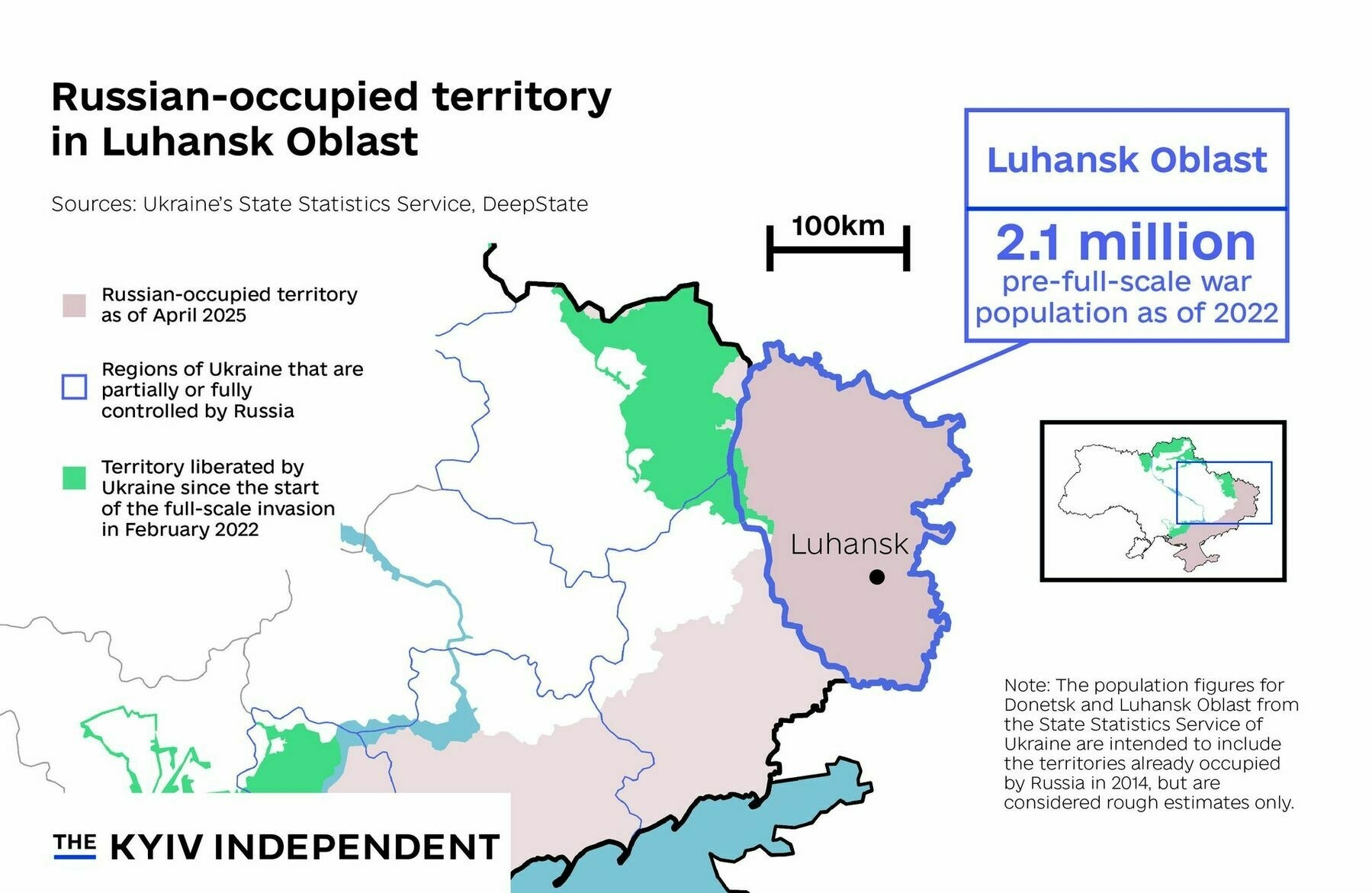
A map showing Russian-occupied parts of Ukraine’s Luhansk Oblast as of 2025. (The Kyiv Independent) The Kremlin is also pushing for a formal recognition of its hold over Ukrainian territories. While U.S. President Donald Trump has reportedly signalled a willingness to U.S. recognition of the Russian occupation of Crimea, Ukraine has rejected the step, as well as its withdrawal from the territory it currently holds.
The poll revealed that public opinion on territorial concessions has remained relatively stable over the past months.
When asked whether Ukraine should give up territories to achieve peace — without specifying a de facto or de jure recognition of the Russian occupation — 52% said Ukraine should not take the step under “any circumstances."
In comparison, 38% of respondents backed the compromise. These are almost the same figures as in December 2024, when 51% were opposed to the concession, while 38% were open to it.
“Our survey shows that the issue of territorial losses is extremely sensitive for Ukrainians and, in particular, how exactly ‘territorial losses’ are interpreted plays a significant role,” said Anton Hrushetskyi, executive director of KIIS, in a statement.
“At the same time, this means that (un)readiness for territorial losses can become the subject of manipulation and information campaigns against Ukraine."
The poll was conducted between May 15 and June 3. It involved 2,004 adult residents of the Ukrainian-controlled territories who were interviewed by telephone. Only about 500 of them answered all four questions.
Key to Russia’s potential defeat lies in its economyAs the war in Ukraine grinds on, attention remains fixed on the battlefield. But Russia’s most vulnerable flank is not in the trenches — it’s in the treasury. The West, and especially the United States, holds economic levers that could push Vladimir Putin toward serious negotiations or even collapseThe Kyiv IndependentWojciech Jakóbik

-
Russian soldier recorded launching grenade at residential building in retaken Kursk Oblast town
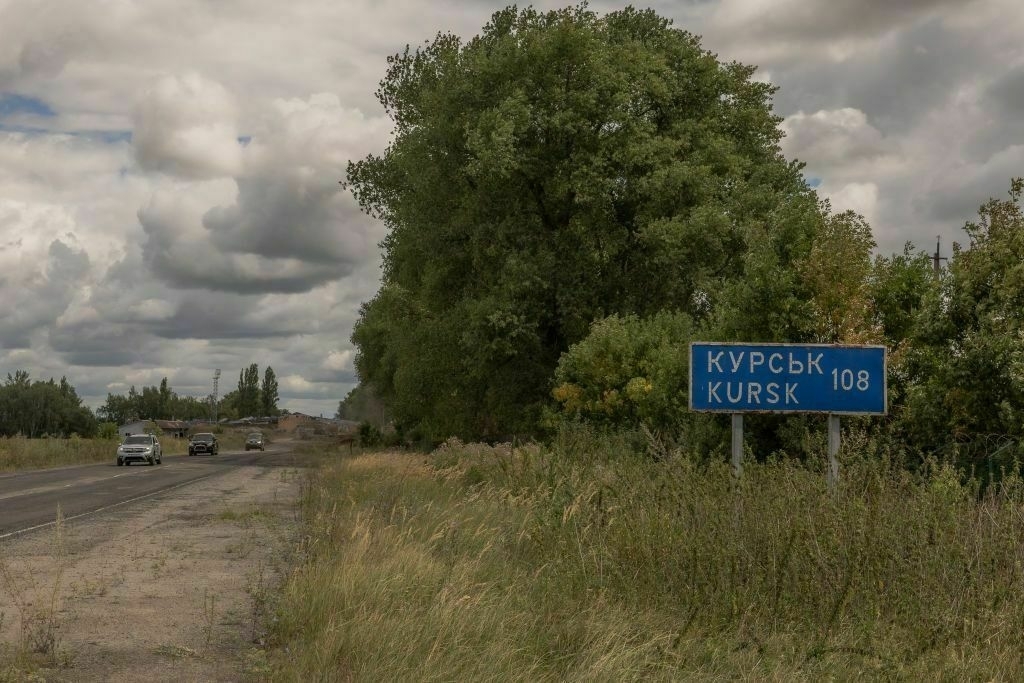
A Russian soldier was seen firing a grenade launcher at a residential building in Sudzha, a border town in Russia’s Kursk Oblast retaken from Ukrainian forces earlier this year, in a video published by independent Russian news outlet Astra on June 9.
In the footage, the soldier is seen loading a grenade launcher while repeatedly shouting “Akhmat! Chechnya!” — a reference to Chechen dictator Ramzan Kadyrov’s forces — before firing in the direction of a residential area.
The Orthodox Holy Trinity Church stands behind the impact site, Astra noted.
It is unclear when the video was filmed. Russian authorities later confirmed the man in the video was a junior sergeant from the 158th military commandant’s office.
0:00/A Russian soldier fires a grenade launcher at a residential building in Sudzha, located in Russia’s Kursk Oblast, as seen in a video published on June 9, 2025. (Astra / Telegram) Kursk Oblast Governor Alexander Khinshtein wrote on Telegram on June 9 that the shot narrowly missed the church and struck a residential building. He added that the soldier died in a traffic accident while fleeing from law enforcement in early June.
“He will answer for his actions in another court: in early June, the junior sergeant died in a traffic accident,” the governor wrote. “This is a lesson for everyone, regardless of religion."
Russian troops retook Sudzha in March, months after Ukrainian forces captured the town during the August 2024 cross-border incursion into Russia’s Kursk Oblast.
The incursion prompted a months-long Russian counteroffensive, backed by North Korean forces, which forced Ukrainian troops to withdraw from much of the previously seized territory.
Located just 10 kilometers (around 6 miles) from Ukraine’s northeastern border, Sudzha had a pre-war population of around 6,000.
Exiled Russian scholar on why Dugin is no philosopher, and Russia no defender of ‘traditional values’In recent years, the Kremlin has sought to cast Russia as a bastion of so-called traditional values, positioning itself in stark contrast to what it describes as the morally decaying West. Yet beneath this veneer, a more complex reality persists. As exiled Russian philosopher Alexey Zhavoronkov told the Kyiv Independent,The Kyiv IndependentKate Tsurkan
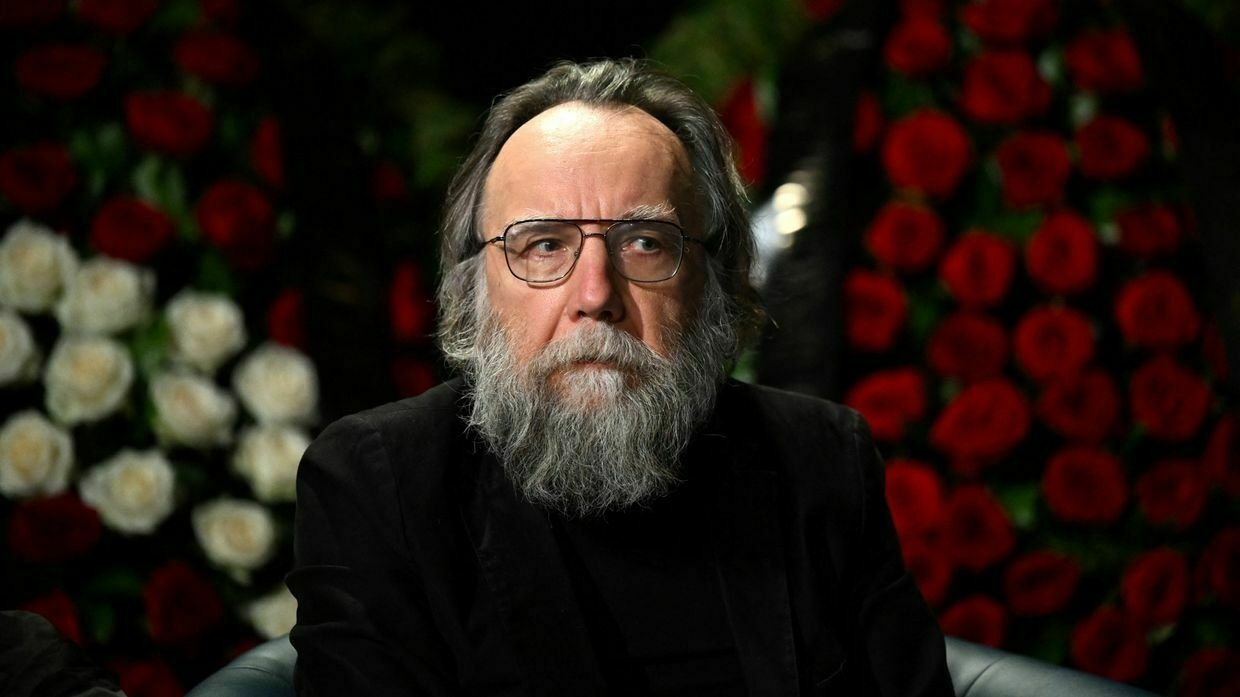
-
Russia to help North Korea produce Shahed-type drones, Ukraine's spy chief says
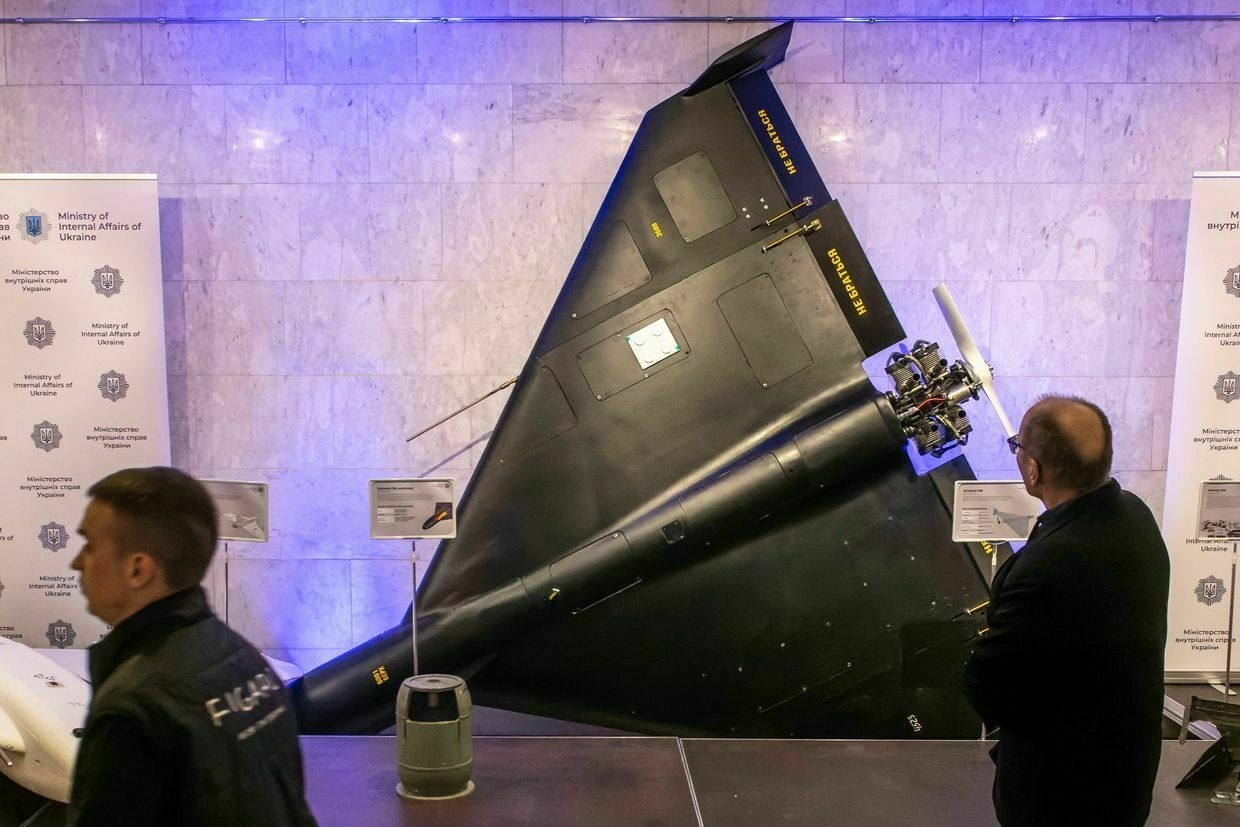
Russia has agreed to help North Korea begin domestic production of Shahed-type “kamikaze” drones, Ukraine’s military intelligence chief Kyrylo Budanov said in an interview with the War Zone magazine published on June 9.
Shahed drones could enable North Korea to strike targets across South Korea, potentially overwhelming air defenses, and could also assist Russia in its war against Ukraine, the War Zone wrote.
Budanov said Moscow and Pyongyang reached an agreement to start organizing the manufacturing of Iranian-designed Garpiya and Geran drones — the latter being Russia’s designation for the Shahed-136 loitering munition — on North Korean territory.
“It’s more about technology transfer,” Budanov told the outlet, warning that the development could upset the military balance on the Korean Peninsula. “They just agreed to start the organization of this production.”
Shahed drones, cheap and packed with explosives, have become a central weapon in Russia’s aerial assaults on Ukraine since their introduction in late 2022.
Known for flying long distances before slamming into targets, they are now mass-produced by Russia and launched in near-nightly waves to overwhelm Ukrainian air defenses.
The news comes amid deepening military ties between Russia and North Korea. According to a May 29 report by the Multilateral Sanctions Monitoring Team (MSMT), Pyongyang shipped to Russia up to 9 million artillery shells and at least 100 ballistic missiles in 2024 alone.
North Korea’s involvement in the war expanded in fall 2024, when it deployed thousands of troops to Russia’s western border to help fend off a large-scale Ukrainian incursion. The move followed the signing of a defense treaty between the two countries in June 2024, obligating both to provide military aid if either is attacked.
North Korea acknowledged its role in the war only in April 2025. A month later, North Korean dictator Kim Jong Un said the country’s participation was part of a “sacred mission,” aligning Pyongyang’s narrative with Moscow’s.
Kim remains a vocal ally of Russian President Vladimir Putin, supplying not only soldiers but also artillery, drones, and ballistic missiles. During Russia’s May 9 Victory Day Parade in Moscow, Putin personally greeted North Korean troops, though Kim did not attend.
In one of largest attacks on Ukraine’s capital, Russian barrage hits Kyiv, Odesa, kills 2, injures 12In the early hours of June 10, Kyiv and Odesa came under another mass Russian attack, involving ballistic missiles and drones. Explosions were heard across the capital as air defense systems engaged the targets.The Kyiv IndependentOlena Goncharova
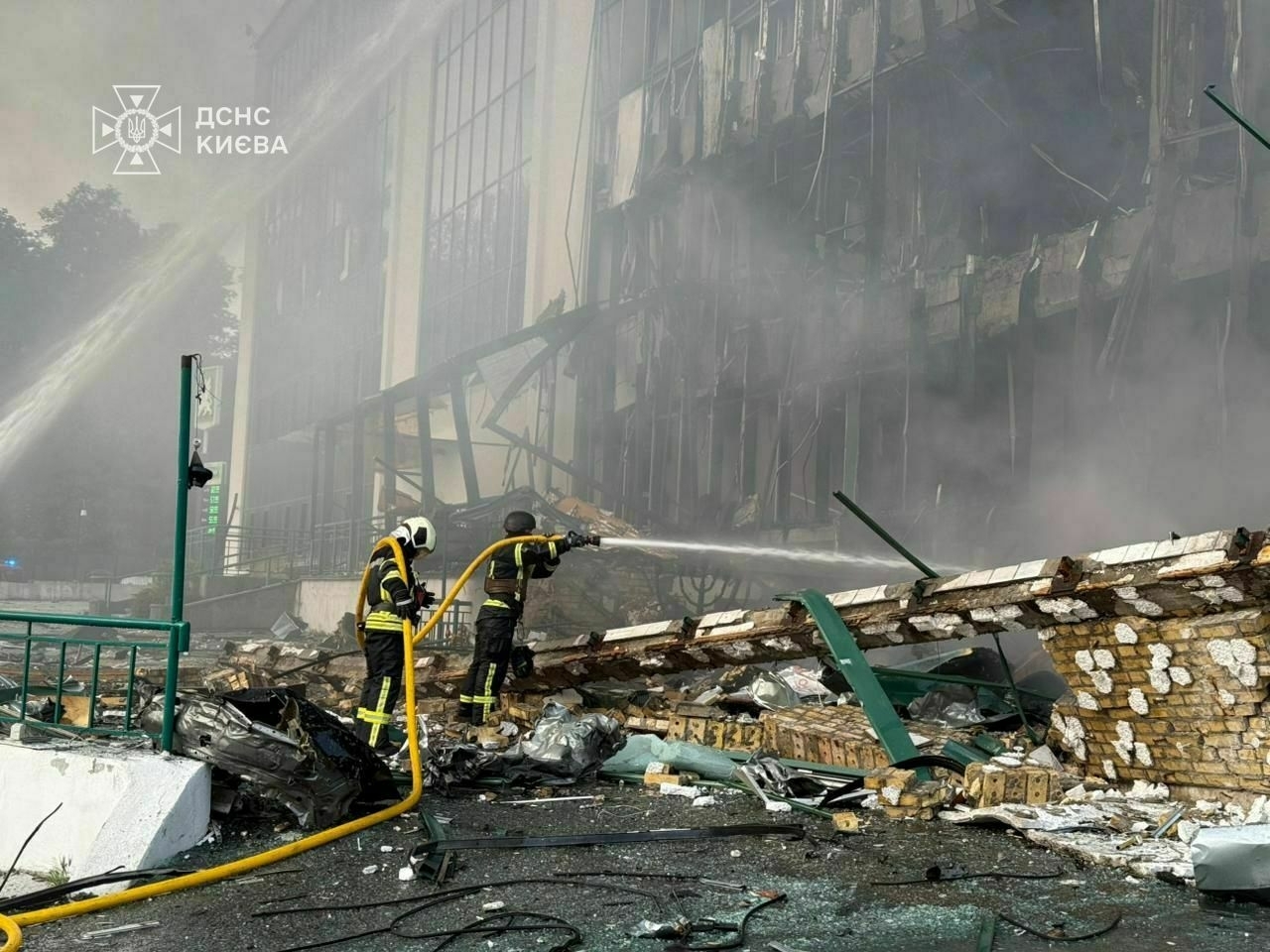
-
Russia doubts NATO's Article 5, could use 'little green men' to test it, German intelligence chief warns
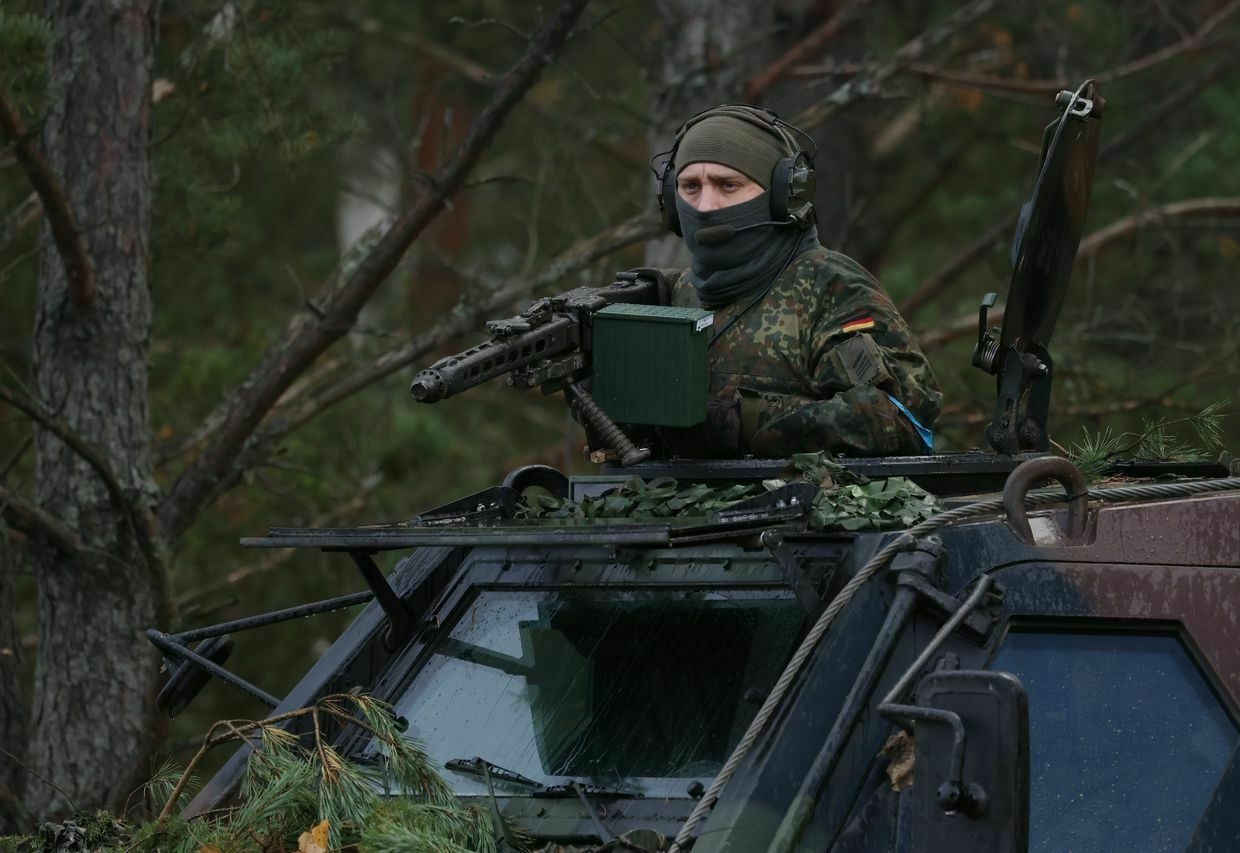
Russia wants to test NATO’s resolve by hostile steps beyond Ukraine, as some Russian officials believe the alliance’s collective defense principle no longer works, German intelligence chief Bruno Kahl told the Table Media news outlet in an interview published on June 9.
“There are people in Moscow who no longer believe that NATO’s Article 5 works. And they would like to test it,” Kahl said in the podcast interview.
The comments come as NATO Secretary General Mark Rutte warned that Russia could be ready to launch an attack against the alliance within five years. Such stark warnings have become increasingly common since Moscow’s full-scale invasion of Ukraine in 2022.
The chief of Germany’s Federal Intelligence Service (BND) noted that Moscow sees its war in Ukraine as “only a step on its path westward.” Citing intelligence sources, he said Russia may seek to start a lower-intensity confrontation that will test the U.S.’s willingness to fulfill its obligations under Article 5.
“They don’t need to send tanks for that,” Kahl noted. “They just have to send ‘little green men’ to Estonia to defend the allegedly oppressed Russian minority.”
Article 5 refers to a key principle of the North Atlantic Treaty, which obliges all members to treat an attack on one member as an attack on all and provide assistance. The article has been invoked only once, following the September 11 terrorist attacks against the U.S. in 2001.
The term “little green men” was first used in reference to Russian soldiers without insignia who seized key strategic facilities in Crimea in 2014 in the opening phase of the Russian occupation of the Ukrainian peninsula.
Concerns among NATO members about a potential Russian aggression and Washington’s commitment to the alliance have grown since U.S. President Donald Trump took office in January.
The new administration has signaled plans to reduce military presence in Europe, and Trump has even directly challenged the collective defense principle by saying the U.S. would not defend NATO members who do not invest sufficiently in their military capabilities.
New German Chancellor Friedrich Merz traveled to Washington last week to meet Trump and discuss joint support for Ukraine and NATO’s future. While the talks proceeded relatively smoothly, the German chancellor failed to obtain any concrete commitments from Trump.
Multiple Ukrainian and Western officials have warned that Russia may be preparing for an open confrontation with NATO after ending its war against Kyiv. The preparations may pick up pace if Western sanctions are lifted as part of a potential peace deal, Ukrainian intelligence said.
What UK’s Strategic Defense Review means for UkraineBritish Prime Minister Keir Starmer announced on June 2 that the United Kingdom is moving to “warfighting readiness,” in large part in response to the full-scale invasion of Ukraine and the threat Russia poses to Europe. He made the comment as his government unveiled its latest Strategic Defense Review, whichThe Kyiv IndependentAlex Nichol
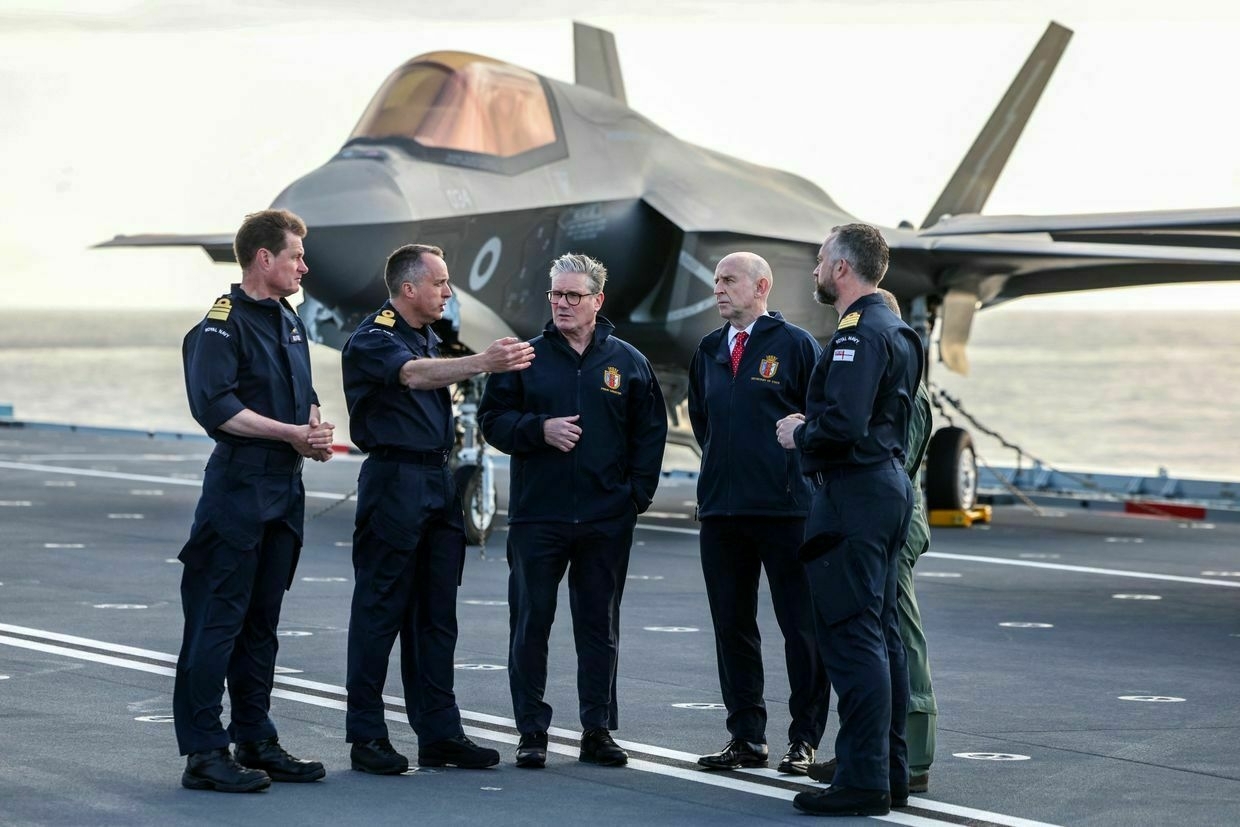
-
Ukraine's NATO membership remains 'irreversible' despite possible communique omission, Rutte says
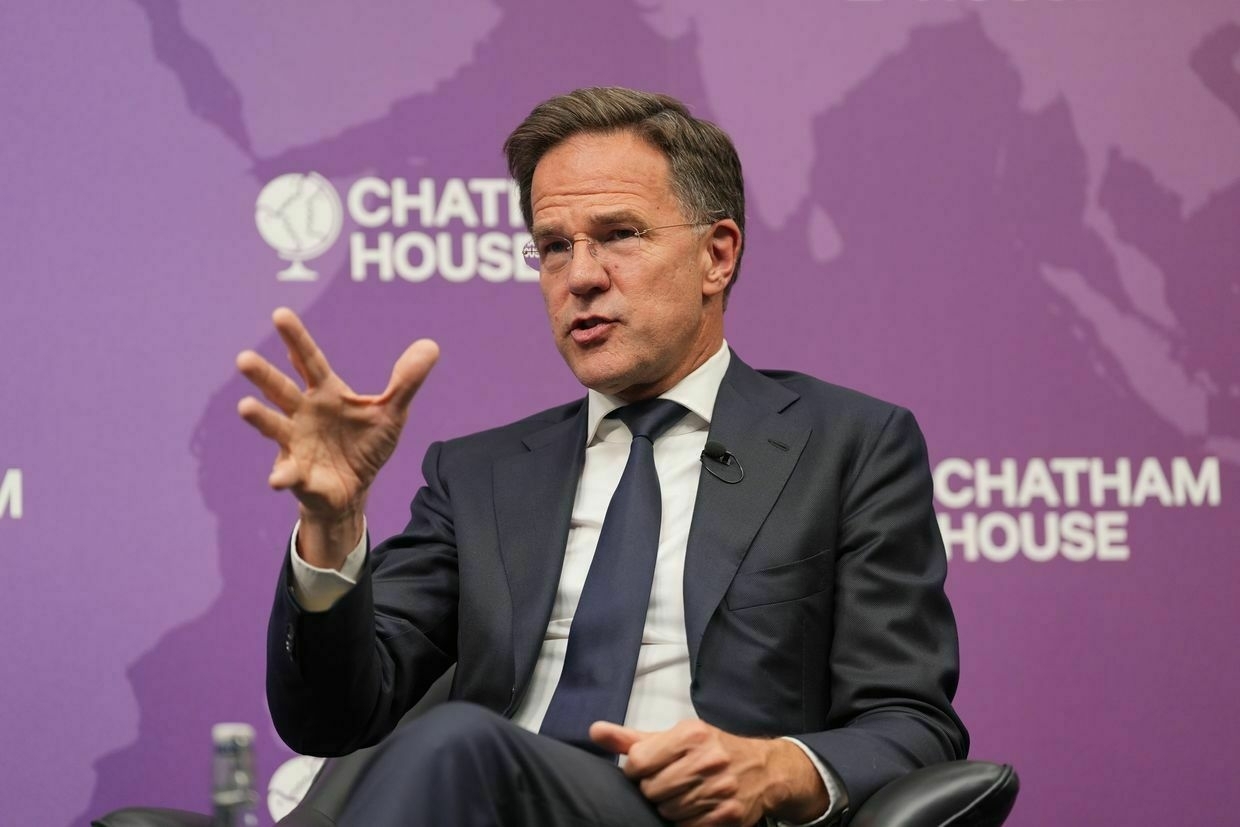
The political commitment to Ukraine’s future membership in NATO remains unchanged, even if it is not explicitly mentioned in the final communique of the upcoming summit in The Hague, NATO Secretary General Mark Rutte said on June 9.
“The irreversible path of Ukraine into NATO is there, and it is my assumption that it is still there after the summit,” Rutte said at Chatham House in London.
“Whether it is again in the communique or not, I think that’s not relevant, because all the language we previously agreed on is there — until we decide it is no longer there."
Rutte’s comments follow reporting that this year’s summit communique, set for release after the June 24–25 meeting, may exclude references to Russia and Ukraine. This would mark a notable departure from previous gatherings, where Kyiv’s future in NATO took center stage.
Ukraine applied for alliance membership in September 2022, several months after Russia launched its full-scale invasion. While NATO has repeatedly affirmed that Kyiv will eventually join, it has yet to extend a formal invitation.
U.S. President Donald Trump, who is set to attend the summit, has claimed that Ukraine’s NATO aspirations provoked the war — a line frequently echoed in Russian propaganda. He also signaled plans to reduce U.S. military presence in Europe and has been reluctant to provide new military support to Kyiv.
President Volodymyr Zelensky confirmed on June 2 that Ukraine had been invited to the upcoming summit, despite earlier speculation that the country might be excluded due to opposition from the Trump administration.
The Ukrainian president has attended every NATO summit since February 2022: in person in 2024 in Washington and 2023 in Vilnius, and virtually in 2022.
This year’s summit is expected to focus more cautiously on alliance posture and defense spending, as internal divisions surface over support for Ukraine and broader geopolitical commitments.
Russian missile and drone barrage hits Kyiv, Odesa, killing 2 and injuring 12, damaging maternity hospitalIn the early hours of June 10, Kyiv and Odesa came under another mass Russian attack, involving ballistic missiles and drones. Explosions were heard across the capital as air defense systems engaged the targets.The Kyiv IndependentOlena Goncharova
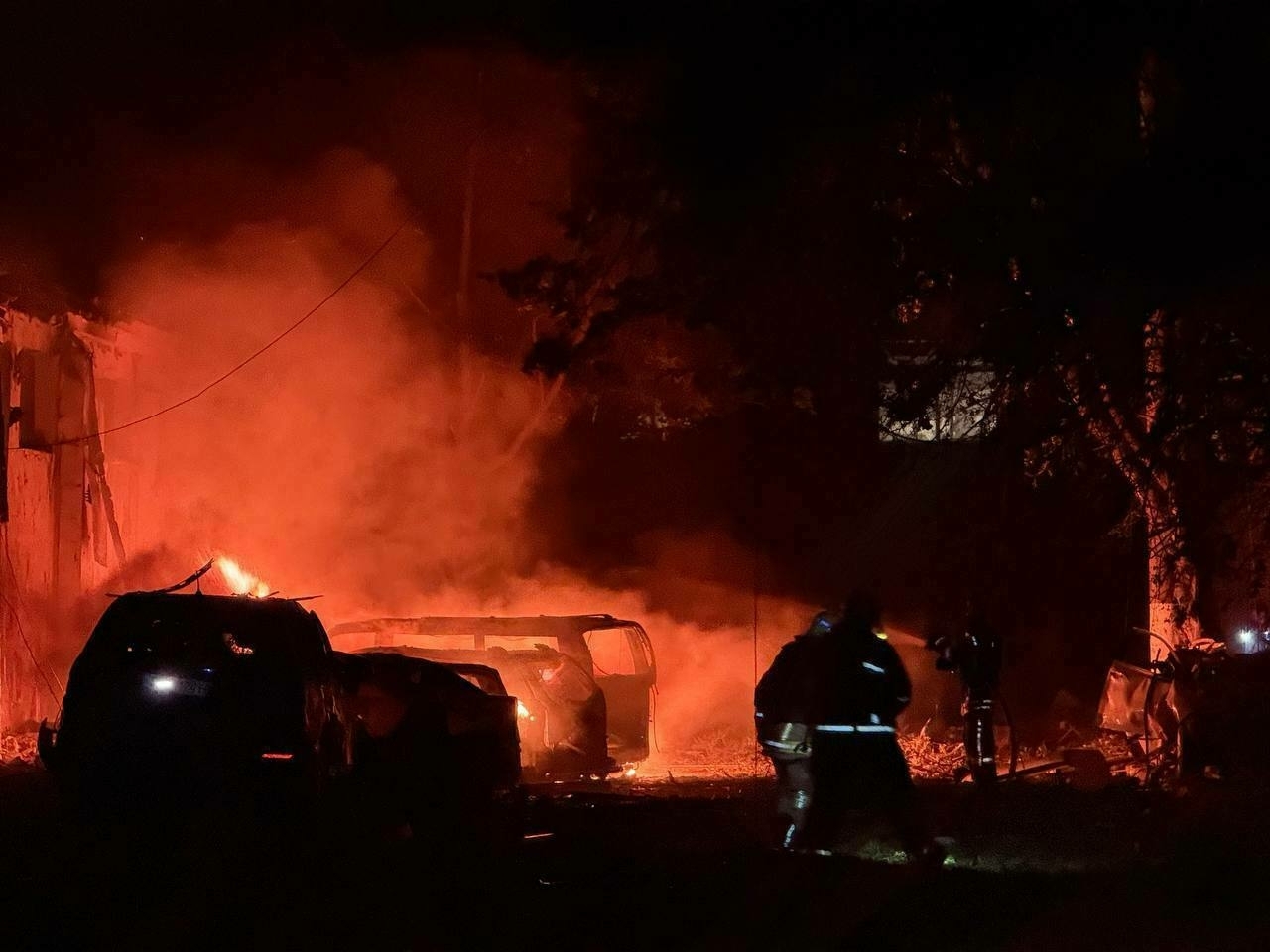
-
Russian attacks kill 7, injure 34 in Ukraine over past day
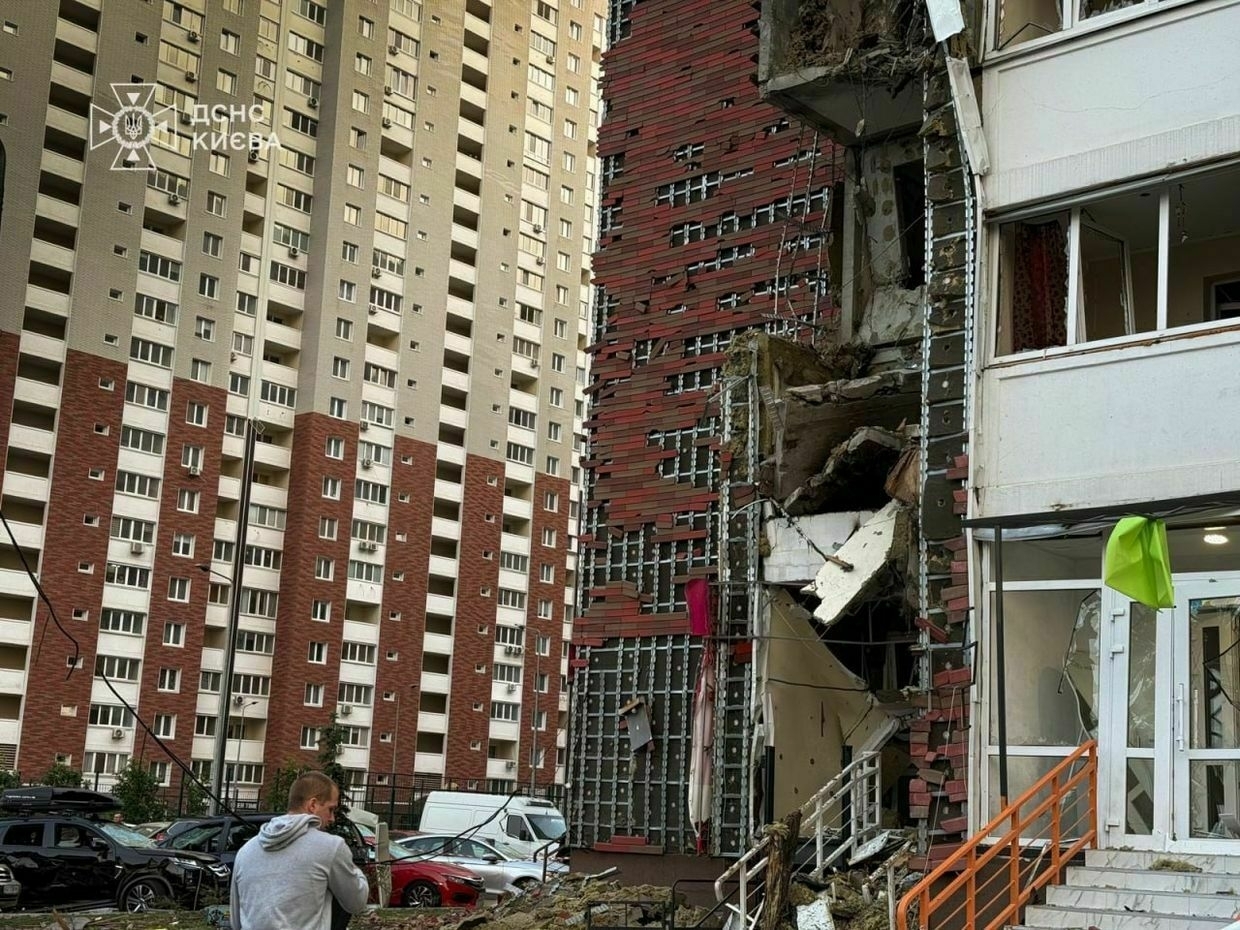
Russian attacks across Ukrainian regions killed at least seven civilians and injured at least 34 over the past day, regional authorities reported on June 10.
Russia launched 315 Shahed-type attack drones and decoys against Ukraine overnight, as well as two North Korean KN-23 ballistic missiles and five Iskander-K cruise missiles, primarily targeting Kyiv, the Air Force reported.
Ukrainian air defenses shot down all seven missiles and 213 attack drones. According to the statement, 64 drones disappeared from radars or were intercepted by electronic warfare systems.
At least four people were injured during the overnight attack on Kyiv, and fires broke out in multiple districts of the capital, Mayor Vitali Klitschko reported. The strike marked one of the heaviest attacks against Ukraine’s capital city throughout the full-scale war.
A drone attack on Odesa killed two men and injured eight other people, four of whom were hospitalized and are in moderate condition, Governor Oleh Kiper said. Medical facilities, including a maternity hospital, were damaged in the southern city.
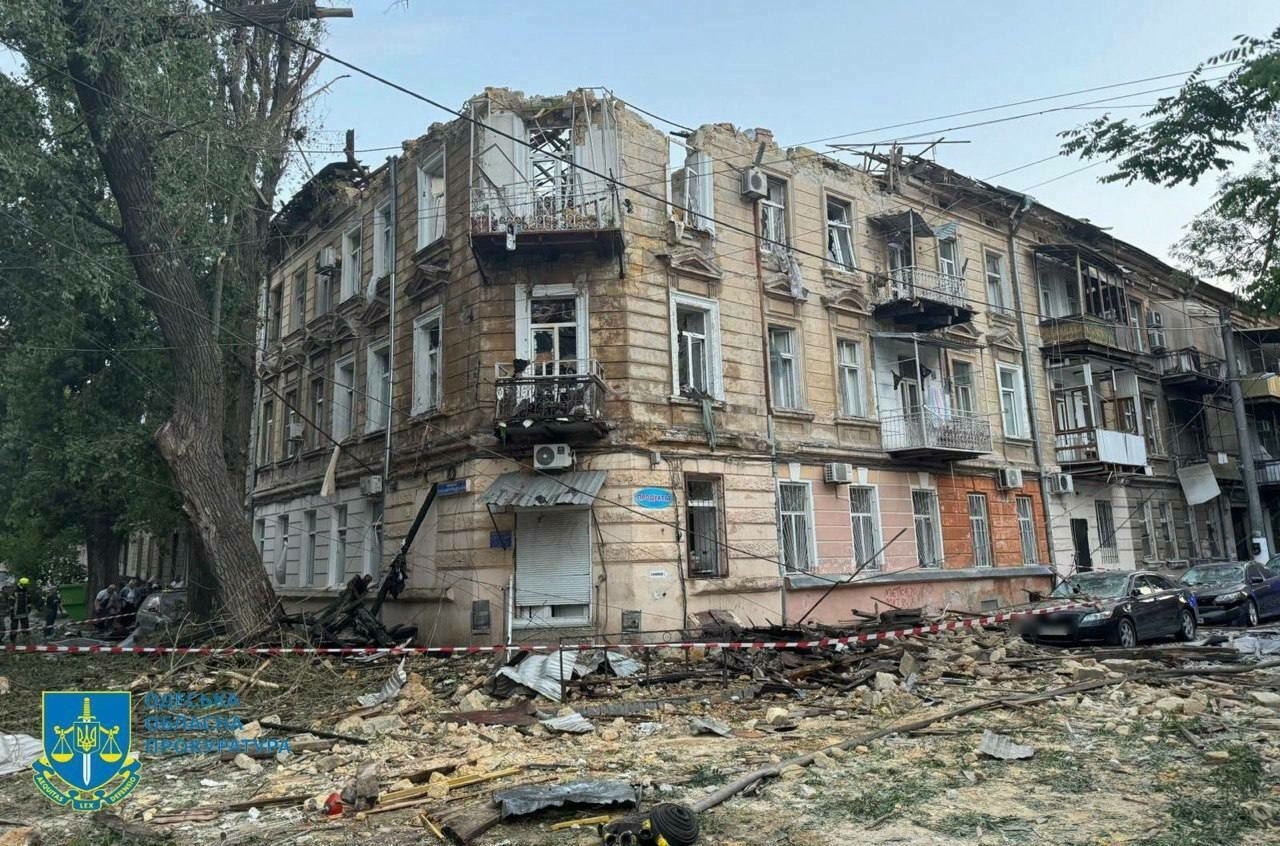
The aftermath of a Russian attack on Odesa, Ukraine, overnight on June 10, 2025. (Prosecutor General’s Office/Telegram) 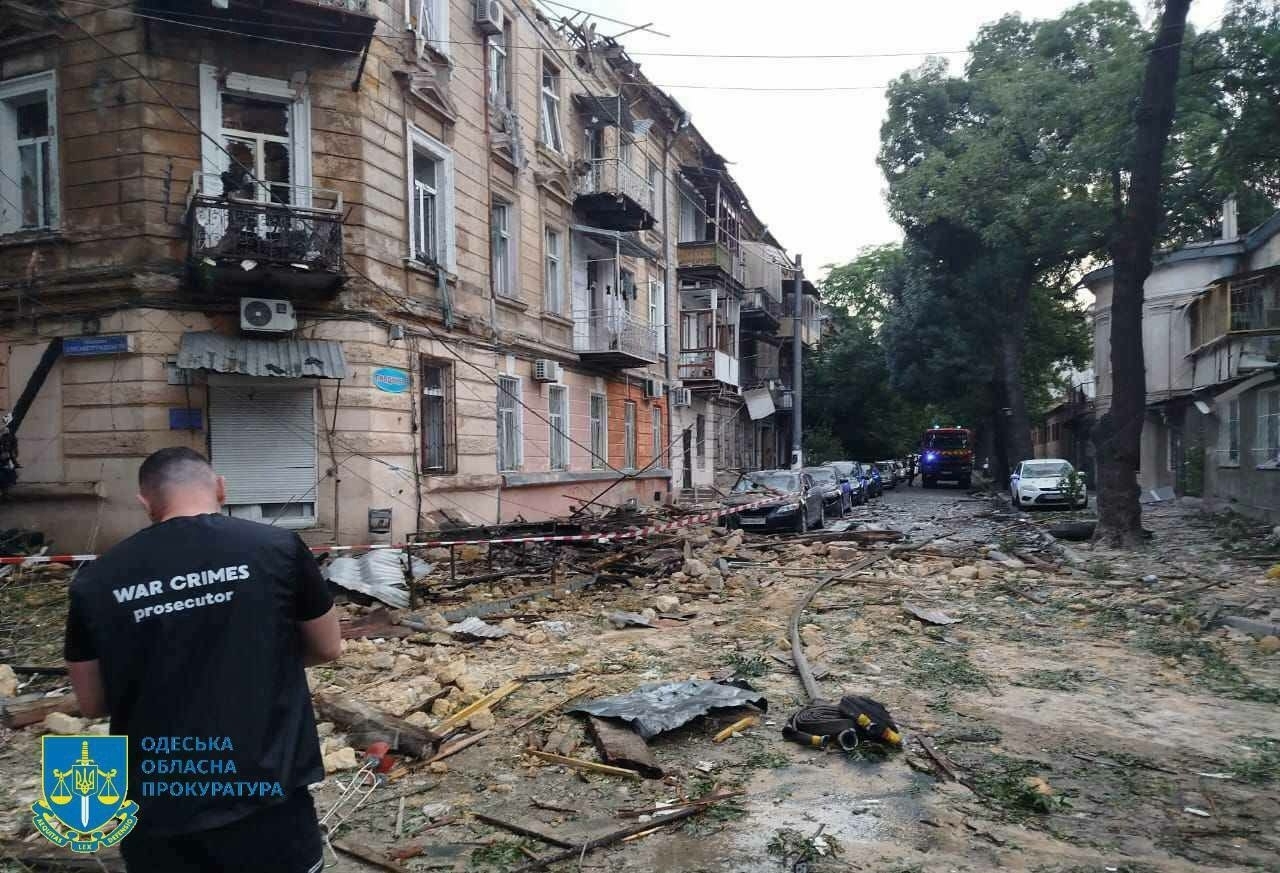
The aftermath of a Russian attack on Odesa, Ukraine, overnight on June 10, 2025. (Prosecutor General’s Office/Telegram) 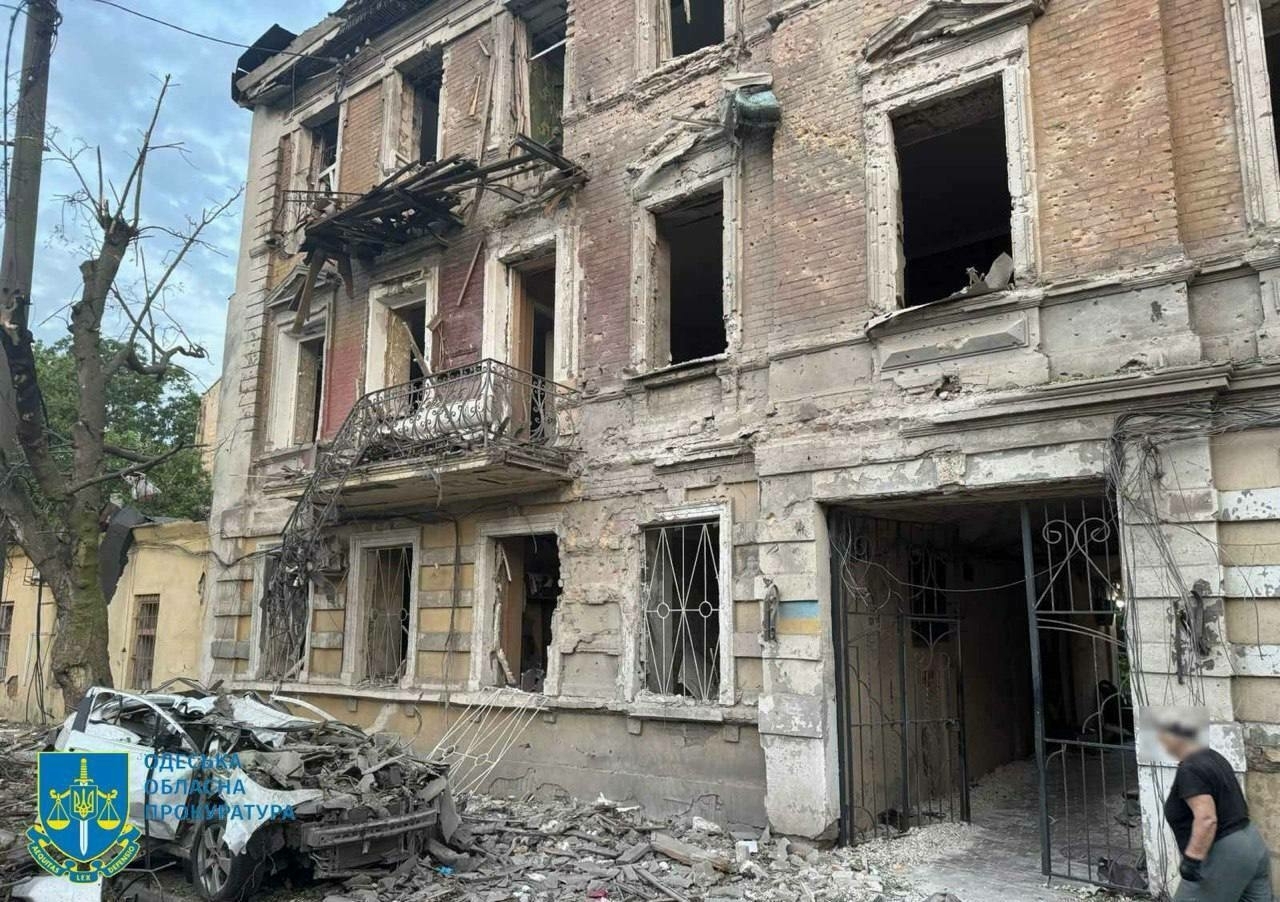
The aftermath of a Russian attack on Odesa, Ukraine, overnight on June 10, 2025. (Prosecutor General’s Office/Telegram) In Dnipropetrovsk Oblast, Russian drone and artillery attacks against the Nikopol district killed one person and injured another on June 9, and wounded two other men overnight on June 10, Governor Serhii Lysak reported.
In the Synelnykove district of the same region, Russian drone attacks set fire to a cultural center, “effectively destroying” it, the governor added.
Russian attacks across Donetsk Oblast killed three people in Yarova, Pokrovsk, and Myrnohrad, and injured eight others, Governor Vadym Filashkin reported.
Russia attacked eight settlements in Kharkiv Oblast with missiles, bombs, and drones, injuring a man in Kupiansk and another in Derhachi, according to Governor Oleh Syniehubov.
In Kherson Oblast, one person was killed and eight injured during Russian attacks, Governor Oleksandr Prokudin reported. Five high-rise buildings and 15 houses were damaged.
An elderly woman was injured during a Russian attack on Zaporizhzhia, according to Governor Ivan Fedorov.
Russian missile and drone barrage hits Kyiv, Odesa, killing 2 and injuring 12, damaging maternity hospitalIn the early hours of June 10, Kyiv and Odesa came under another mass Russian attack, involving ballistic missiles and drones. Explosions were heard across the capital as air defense systems engaged the targets.The Kyiv IndependentOlena Goncharova
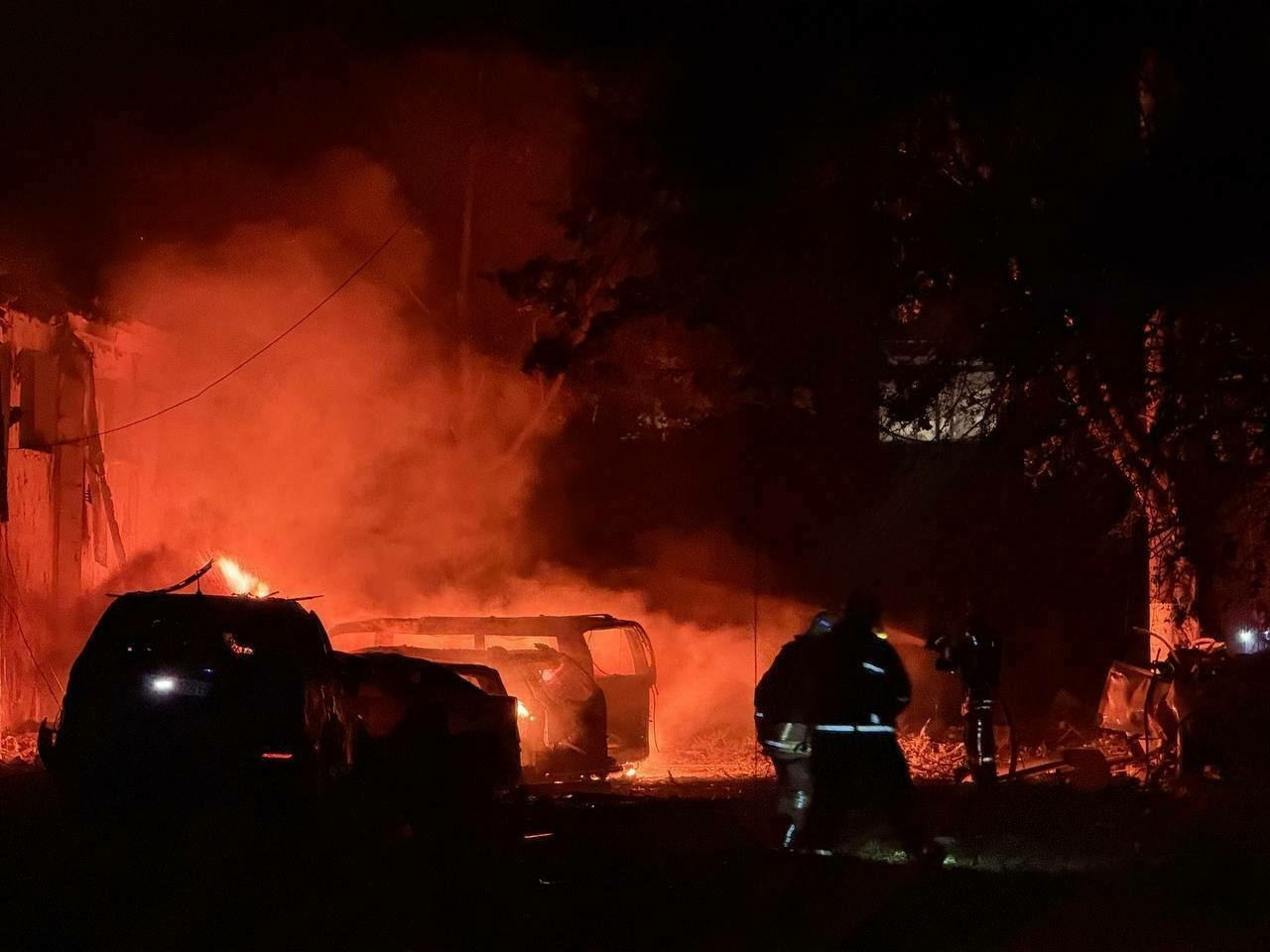
-
17-year-old boy dies after June 3 Russian attack on Sumy, death toll rises to 6
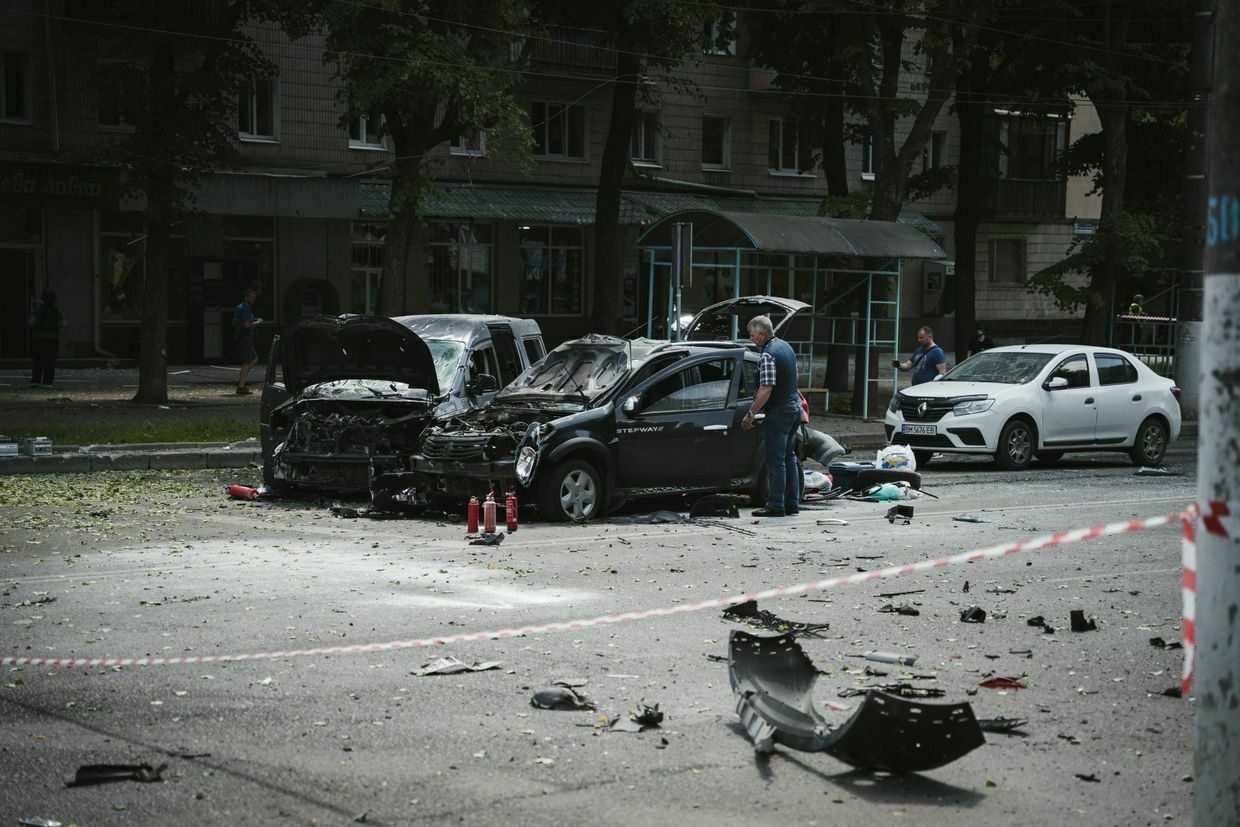
A 17-year-old boy wounded in Russian attacks on downtown Sumy on June 3 died in the hospital, raising the death toll to six, regional Governor Oleh Hryhorov reported on June 10.
Russia launched five attacks on the northeastern Ukrainian city using multiple launch rocket systems earlier this month, striking a densely populated area and injuring 28 people, including three children.
The boy, whose name was not disclosed, succumbed to his injuries several days after the strike.
"Russia is once again targeting what is most precious to us — our children, our future. Seventeen years old is just the beginning of life’s journey. And that journey has been brutally cut short," Hryhorov wrote on Telegram.
The barrage set two vehicles ablaze, heavily damaged a medical facility, and shattered homes across multiple residential buildings.
Emergency workers completed their response at the site by 7 p.m. local time on June 3, and demining teams removed remnants of undetonated ordnance.
President Volodymyr Zelensky said one of the projectiles failed to explode but tore through the wall of a nine-story apartment building.
The attack came less than 24 hours after Russia and Ukraine held the second round of direct peace talks in Istanbul on June 2, which yielded only a preliminary prisoner exchange agreement and no broader ceasefire progress.
Sumy Oblast, which shares a long border with Russia, has been repeatedly shelled and targeted by drone strikes since the full-scale invasion began in 2022.
In late May, Zelensky warned that Russia had concentrated 50,000 troops near the border in preparation for a possible renewed offensive to establish a “buffer zone” along Ukrainian territory.
Since the beginning of the full-scale war in 2022, 632 Ukrainian children have been confirmed killed, according to Ukraine’s national database.
Russian missile and drone barrage hits Kyiv, Odesa, killing 2 and injuring 12, damaging maternity hospitalIn the early hours of June 10, Kyiv and Odesa came under another mass Russian attack, involving ballistic missiles and drones. Explosions were heard across the capital as air defense systems engaged the targets.The Kyiv IndependentOlena Goncharova
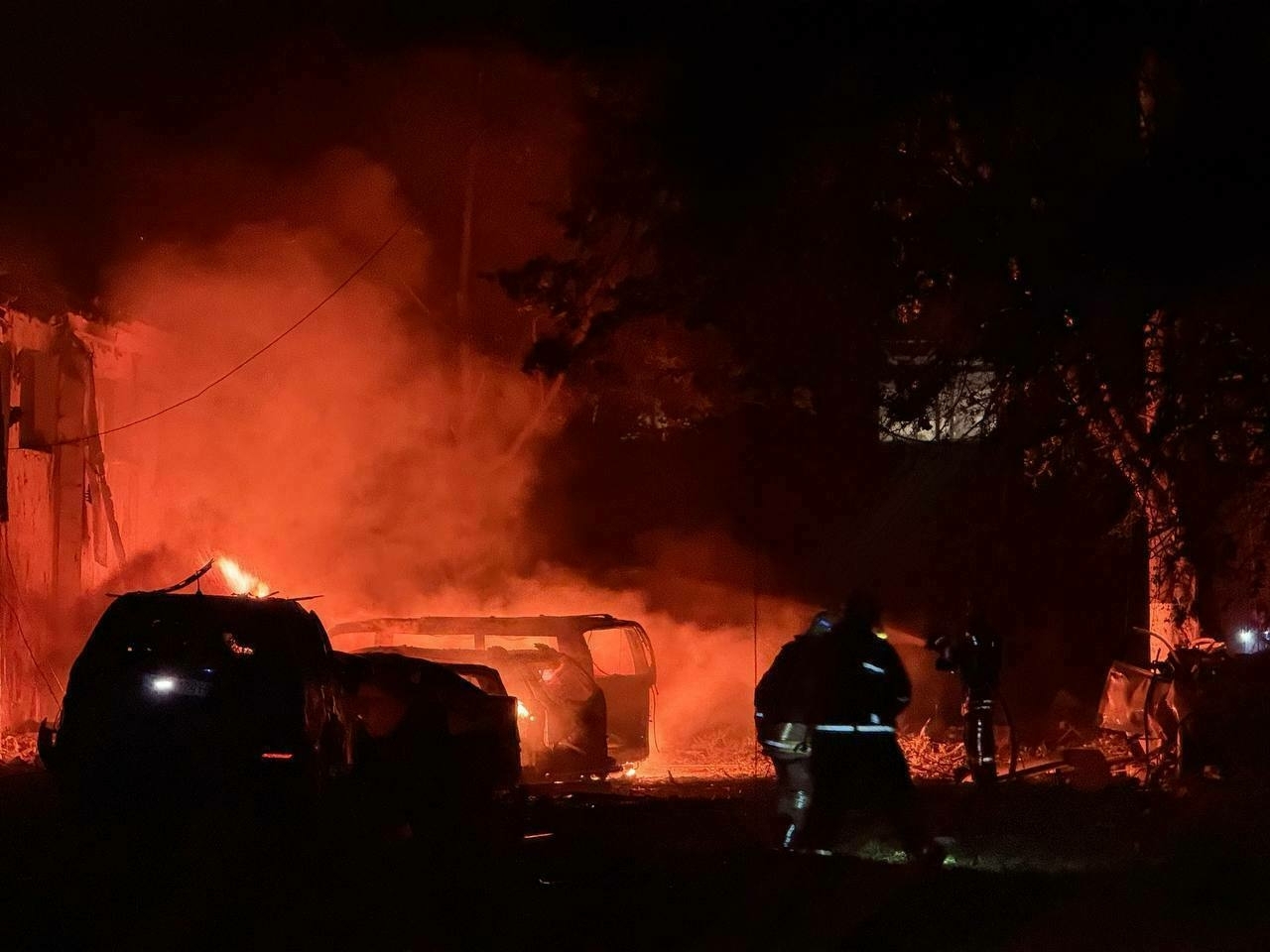
-
General Staff: Russia has lost 998,080 troops in Ukraine since Feb. 24, 2022
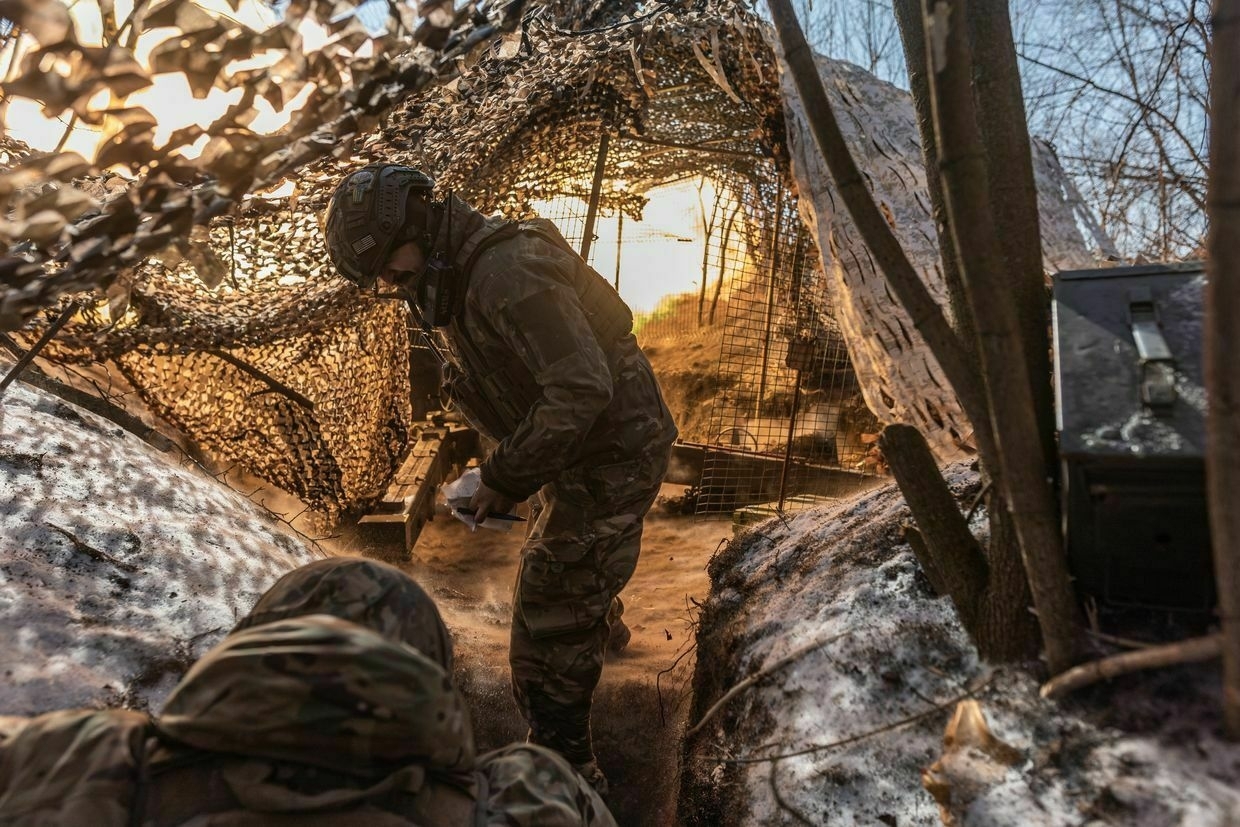
Russia has lost 998,080 troops in Ukraine since the beginning of its full-scale invasion on Feb. 24, 2022, the General Staff of Ukraine’s Armed Forces reported on June 10.
The number includes 960 casualties that Russian forces suffered just over the past day.
According to the report, Russia has also lost 10,919 tanks, 22,768 armored fighting vehicles, 51,455 vehicles and fuel tanks, 28,982 artillery systems, 1,412 multiple launch rocket systems, 1,183 air defense systems, 416 airplanes, 337 helicopters, 40,057 drones, 28 ships and boats, and one submarine.
Drone attacks target Russia’s Tatarstan Republic, Leningrad Oblast, media reportsDrone attacks targeted Russia’s Tatarstan Republic and Leningrad Oblast in the morning of June 10, independent outlet Astra reported.The Kyiv IndependentVolodymyr Ivanyshyn
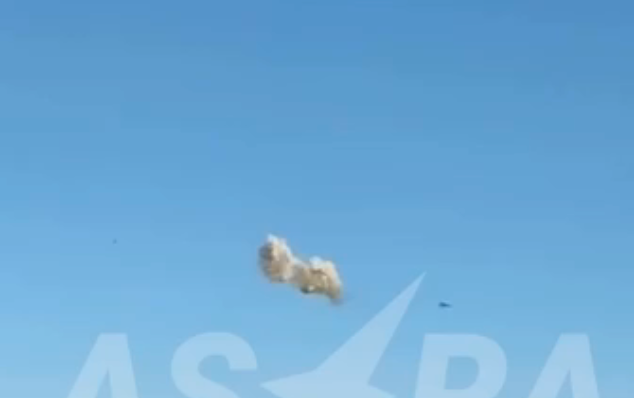
-
Drone attacks target Russia's Tatarstan Republic, Leningrad Oblast, media reports
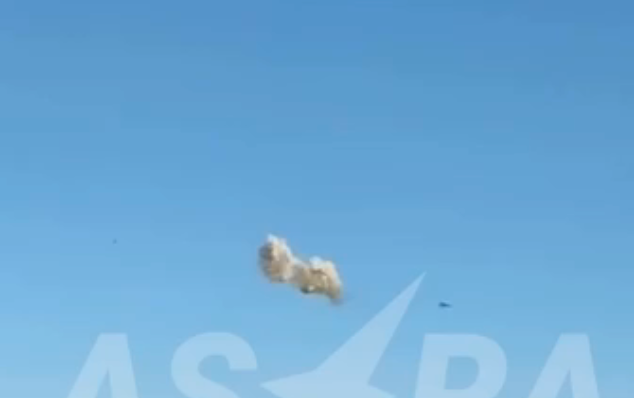
Editor’s note: This is a developing story and is being updated.
Drone attacks targeted Russia’s Tatarstan Republic and Leningrad Oblast in the morning of June 10, independent outlet Astra reported.
In Tatarstan, drones were reported flying over the town of Yelabuga and the city of Nizhnekamsk.
Nizhnekamsk is situated approximately 1,124 kilometers (about 700 miles) from Russia’s border with Ukraine.
Footage shared by Astra appears to show air defenses attempting to shoot down a drone flying over a field in Russia’s Tatarstan.
Meanwhile, in Leningrad Oblast, air defenses destroyed a drone flying over the Tosnensky district and another over the Lomonosov district, local governor Alexander Drozdenko claimed.
There were no casualties or damage to report, he added.
“In a number of areas, restrictions have been introduced on mobile communications and the internet,” Drozdenko said.
The Kyiv Independent could not independently verify the claims.
Restrictions were imposed at several Russian airports overnight on June 10 as a result of drone attacks, a spokesperson for Russia’s state aviation agency Rosaviatsia said.
The airports include St. Petersburg’s Pulkovo airport and Nizhnekamsk airport in Tatarstan.
Ukraine regularly strikes military targets deep within Russian territory in an effort to diminish Moscow’s fighting power in its ongoing war.
A chemical plant in Russia’s Tula Oblast caught fire after it was reportedly targeted a second time in a drone attack overnight on June 8.
On June 1, Ukraine launched a game-changing drone attack on four key Russian military airfields, damaging 41 planes, including heavy bombers and rare A-50 spy planes.
Kyiv claims it has disabled 34% of Russia’s strategic bomber fleet in what is seen as one of the most daring operations during Russia’s full-scale war.
What UK’s Strategic Defense Review means for UkraineBritish Prime Minister Keir Starmer announced on June 2 that the United Kingdom is moving to “warfighting readiness,” in large part in response to the full-scale invasion of Ukraine and the threat Russia poses to Europe. He made the comment as his government unveiled its latest Strategic Defense Review, whichThe Kyiv IndependentAlex Nichol
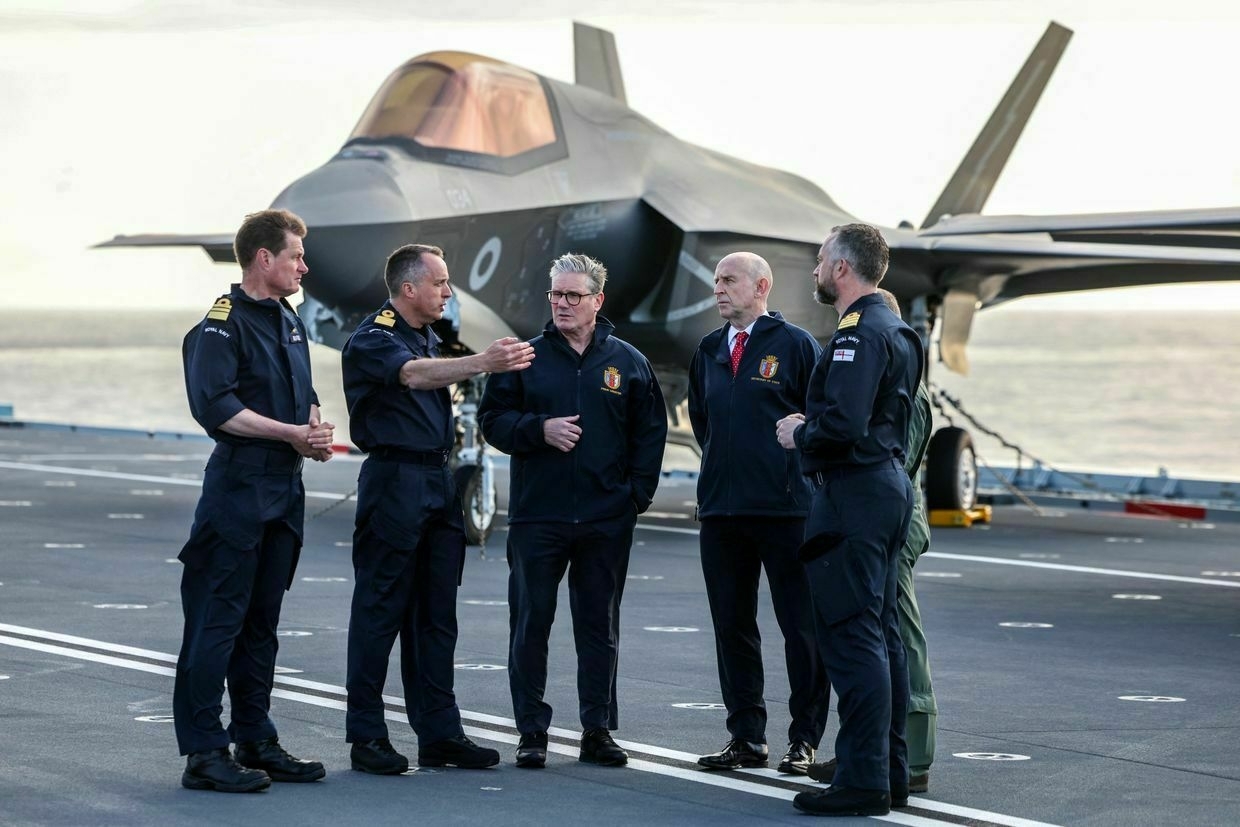
-
Pro-Ukrainian partisans destroy car used by Russian drone operators in occupied Melitopol, Atesh claims
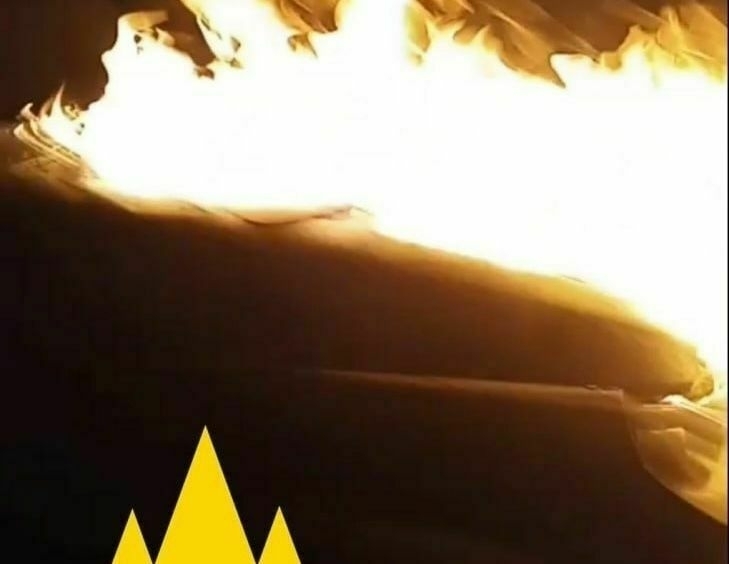
A car used by drone operators in the Russian 64th Separate Motorized Rifle Brigade was destroyed by the Atesh partisan group in occupied Melitopol overnight on June 10, the group claimed.
The Atesh group says they destroyed a military vehicle which contained a “mobile electronic warfare system,” claiming they temporarily “paralyzed” the work of the Russian unit.
“The resistance in southern Ukraine is alive and we are increasing the pressure every day,” the Atesh group said in a post to Telegram.
Meanwhile, Russia conducted a large-scale missile and drone attack on Kyiv and Odesa. One was killed, and seven were injured in both cities.
In Odesa, a medical facility and maternity hospital were damaged in the Russian attack.
“An incendiary mixture was used, which engulfed the car in a matter of seconds and completely destroyed it,” Atesh said.
The group claims they destroyed the car while it was left unguarded after studying the location and habits of the Russian crew.
“This vehicle was used for covert movement and tactical missions in the south of Ukraine. Now the enemy is left without critical transport,” the Atesh group said.
The Kyiv Independent could not verify the group’s claims.
The Atesh partisan group regularly conducts sabotage attacks in Russia and Ukraine’s Russian-occupied territories.
Ukraine begins new major prisoner exchange with RussiaAmong those freed are defenders of Mariupol who had spent more than three years in captivity.The Kyiv IndependentAnna Fratsyvir
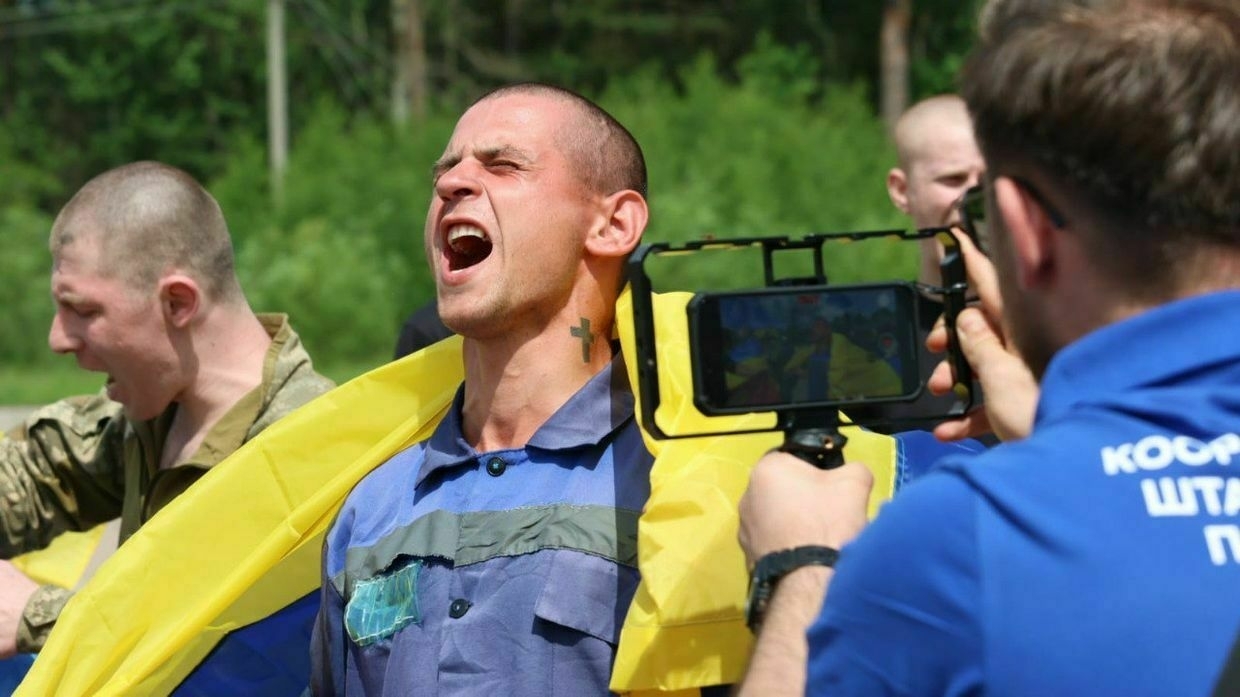
-
Waves of explosions rock Kyiv amid Russian missile, drone attack
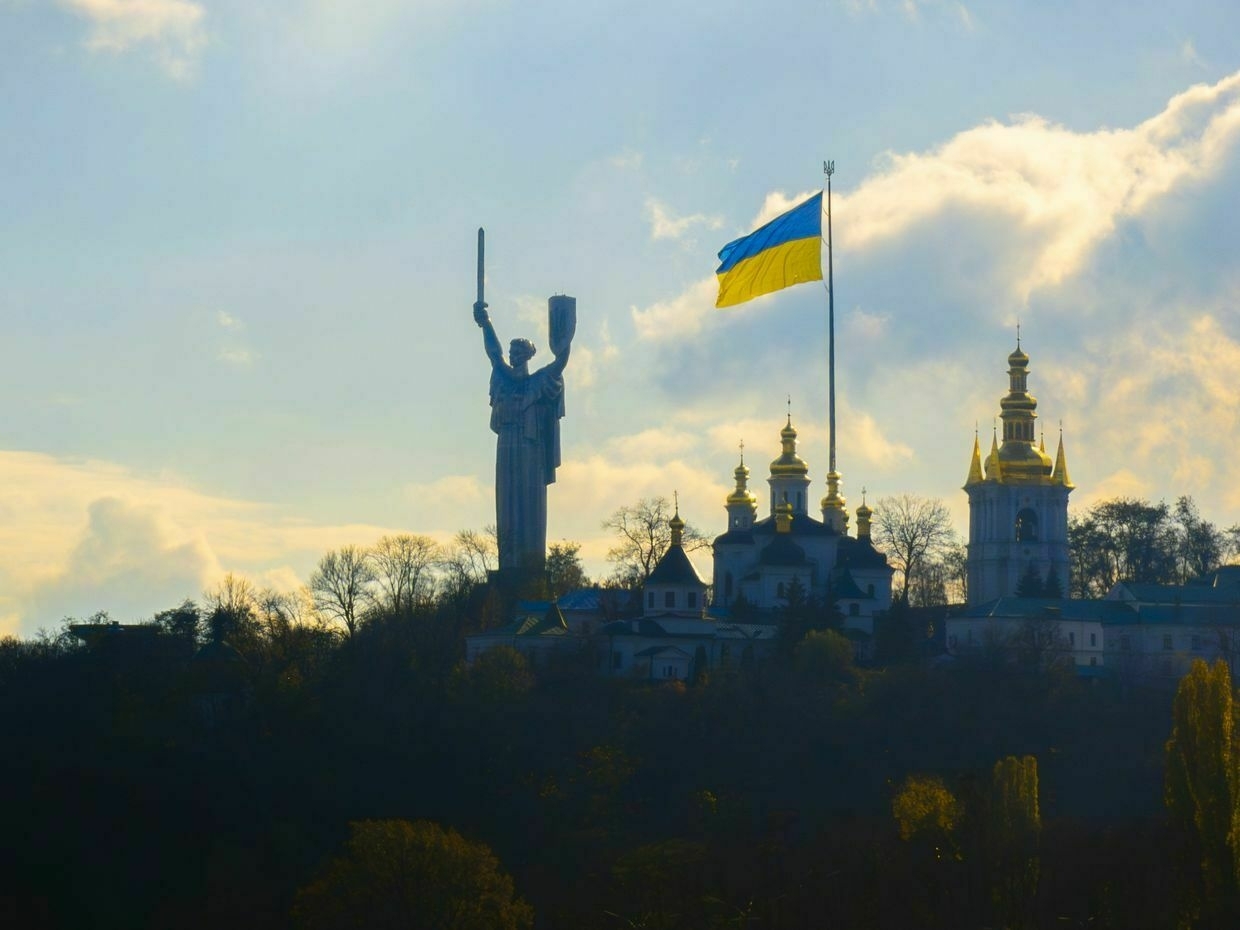
Editor’s note: This is a developing story and is being updated.
In the early hours of June 10, Kyiv came under another Russian attack, involving ballistic missiles and drones. Explosions were heard across the city as air defense systems engaged the targets.
Air defense earlier warned of the threat of missile and drone attack.
Kyiv Mayor Vitali Klitschko reported that cars were on fire in the Shevchenkivskyi district, while drone debris fell on the grounds of a school in the Obolonskyi district. Emergency services were dispatched to the sites of attack, and medics were also called to the Podilskyi and Darnytskyi districts.
In the Dniprovskyi district, smoke was seen coming from non-residential buildings, and a fire broke out at a non-residential site in the Obolonskyi district. Klitschko said a new wave of Russian drones was heading toward the capital and urged residents to remain in shelters as the mass attack on Kyiv continued.
The renewed assault comes just a day after Russia launched a record 499 aerial weapons against Ukraine, including 479 Shahed-type attack drones, decoy drones, four Kh-47M2 Kinzhal ballistic missiles, 10 Kh-101 cruise missiles, three Kh-22 cruise missiles over the Black Sea, two Kh-31P anti-radar missiles, and one Kh-35 cruise missile from occupied Crimea.
Ukraine reported it had neutralized 479 of those targets — 292 were shot down and 187 were disrupted through electronic warfare.
Exclusive: Russia’s ballistic missile production up at least 66% over past year, according to Ukrainian intel figuresRussia’s production of ballistic missiles has increased by at least 66% over the past year, according to data from Ukraine’s military intelligence (HUR) shared with the Kyiv Independent. According to data obtained by HUR, Moscow is now producing 60 to 70 Iskander-M — the ballistic version of the missile — and 10The Kyiv IndependentKollen Post
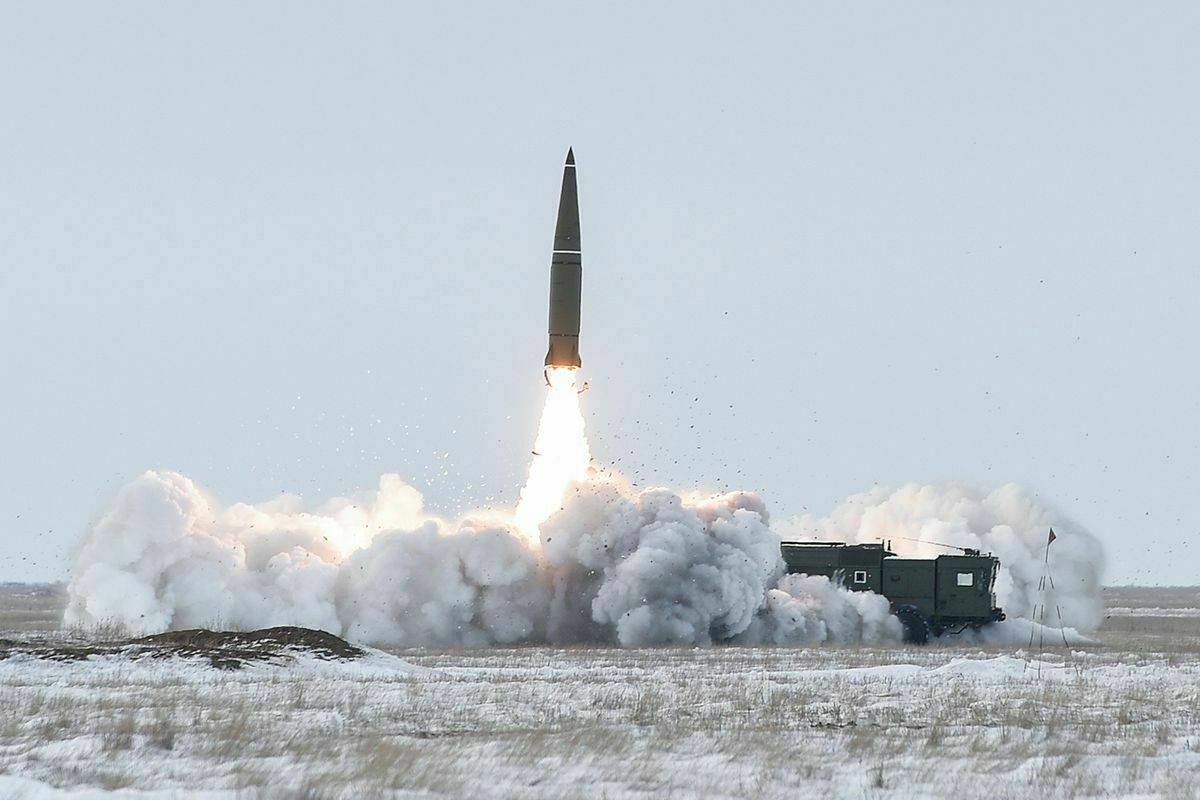
-
US accuses Russian of laundering millions, helping Moscow obtain sensitive technology
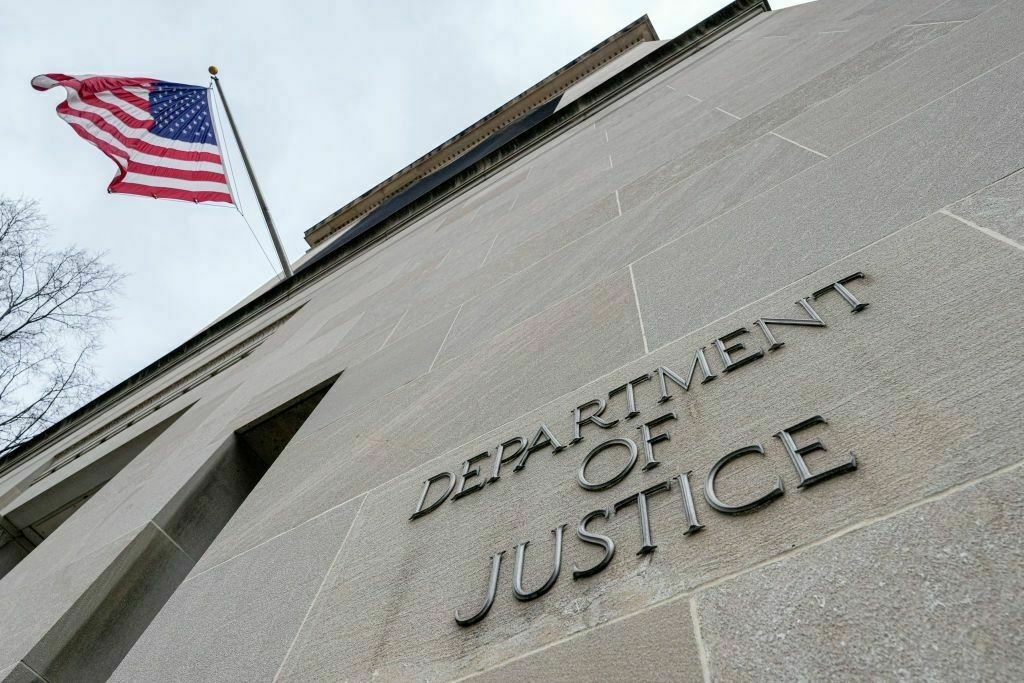
U.S. prosecutors have charged cryptocurrency entrepreneur Iurii Gugnin with laundering over $500 million and helping sanctioned Russian entities bypass export controls.
Gugnin, a 38-year-old Russian national living in New York, founded the U.S.-based companies Evita Investments and Evita Pay. He was arrested in New York on June 9 and faces multiple charges, including wire fraud, bank fraud, money laundering, and conspiracy.
According to court documents, Gugnin used his crypto payments companies to receive cryptocurrency from foreign clients, many of whom held accounts at sanctioned Russian banks. He then converted the funds into U.S. dollars through U.S. bank accounts and facilitated payments for electronics and other goods, concealing the origin of the money and the identities of those involved.
“Gugnin’s cryptocurrency company allegedly served as a front to launder hundreds of millions of dollars for sanctioned Russian entities and to obtain export-controlled technology for the Russian government,” said Assistant Director Roman Rozhavsky of the FBI’s Counterintelligence Division.
Between June 2023 and January 2025, Gugnin used Evita to facilitate the movement of approximately $530 million through the U.S. financial system, most of which he received in the form of a cryptocurrency stablecoin known as Tether, according to the U.S. Department of Justice report.
Prosecutors allege that Gugnin laundered money used to purchase parts for Rosatom, Russia’s state-owned nuclear technology company, and helped Russian end-users acquire export-controlled U.S. technology. Assistant Attorney General John A. Eisenberg said Gugnin turned a crypto startup into “a covert pipeline for dirty money.”
The Department of Justice accused Gugnin of deceiving banks and crypto exchanges by falsely claiming that Evita did not deal with Russian or sanctioned entities. He also allegedly doctored invoices to obscure Russian customers and failed to comply with anti-money laundering rules, including neglecting to file required suspicious activity reports.
If convicted, Gugnin faces a maximum penalty of 30 years in prison for each count of bank fraud and a maximum penalty of 20 years in prison for each of the wire fraud.
Key to Russia’s potential defeat lies in its economyAs the war in Ukraine grinds on, attention remains fixed on the battlefield. But Russia’s most vulnerable flank is not in the trenches — it’s in the treasury. The West, and especially the United States, holds economic levers that could push Vladimir Putin toward serious negotiations or even collapseThe Kyiv IndependentWojciech Jakóbik

-
Canada to hit NATO spending target this year as it shifts defense focus toward EU
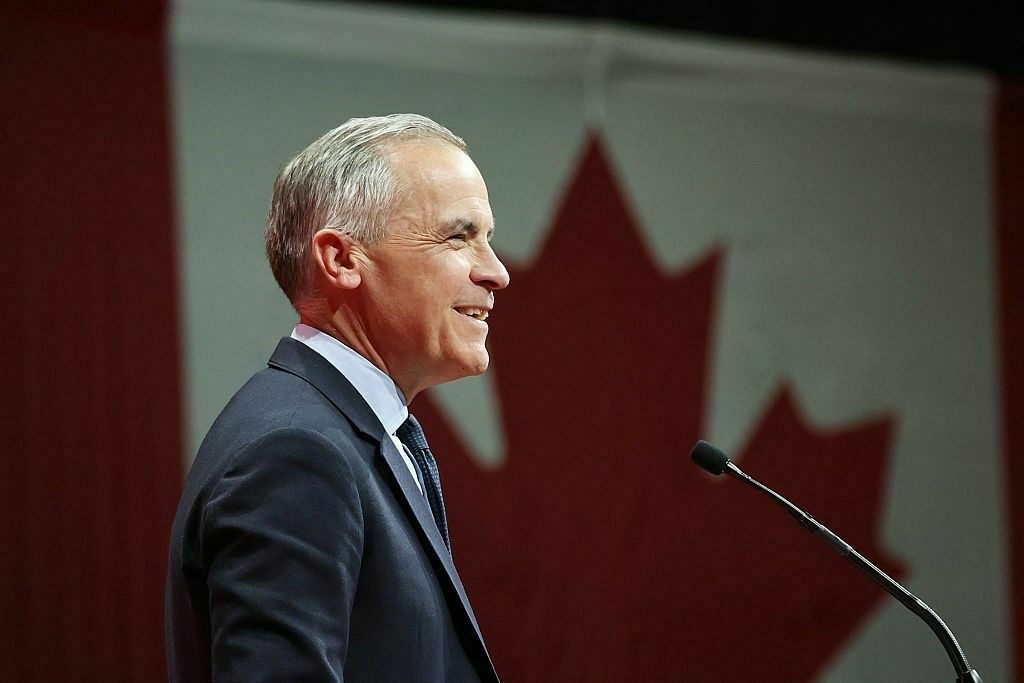
Canada will reach NATO’s defense spending target of 2% of GDP this year, five years ahead of schedule, Prime Minister Mark Carney announced on June 9.
Speaking at the University of Toronto, Carney said the move is part of a strategic pivot away from reliance on the U.S. and toward deeper cooperation with the European Union, citing growing security threats from Russia, China, and other adversaries.
Carney said Canada’s current military capabilities are inadequate, noting that only one of four submarines is operational and much of the maritime and land fleet is outdated.
To reverse this trend, his government is launching a $6.8 (9.3 billion Canadian dollars) boost to the defense budget for 2025-26. The investment will be tabled in Parliament through supplementary estimates and directed toward rebuilding the Canadian Armed Forces, upgrading equipment, and expanding domestic production capabilities.
The new defense posture includes reassessing major procurement decisions, such as the planned purchase of U.S.-made F-35 jets, and prioritizing partnerships with European firms for equipment acquisitions.
Carney emphasized that three-quarters of Canada’s defense capital spending has gone to the U.S., a pattern he said must end. “We’re doing this for us,” Carney was quoted as saying. “Relatedly we’re doing it as a strong NATO partner, we’re a firm believer in NATO, and we’re standing shoulder to shoulder with our NATO allies, we’ll continue to do so. .”
Carney’s announcement comes just ahead of the NATO leaders' summit in late June, where member states are expected to commit to higher defense spending thresholds of up to 5%.
The prime minister said Canada would support a new NATO defense industrial pledge and participate in the EU’s ReArm Europe initiative. He added that future cooperation with the EU will be a major theme of the upcoming Canada-EU summit.
Ukraine war latest: Ukraine shoots down nearly 500 drones, missiles in Russian record strike, Air Force saysKey developments on June 9: * Ukraine shoots down nearly 500 drones, missiles in Russian record strike, Air Force says * Ukraine begins new major prisoner exchange with Russia * Russia claims offensive in Dnipropetrovsk Oblast aimed at creating ‘buffer zone,’ Ukraine denies reports of incursion * Putin approves new naval strategy asThe Kyiv IndependentThe Kyiv Independent news desk
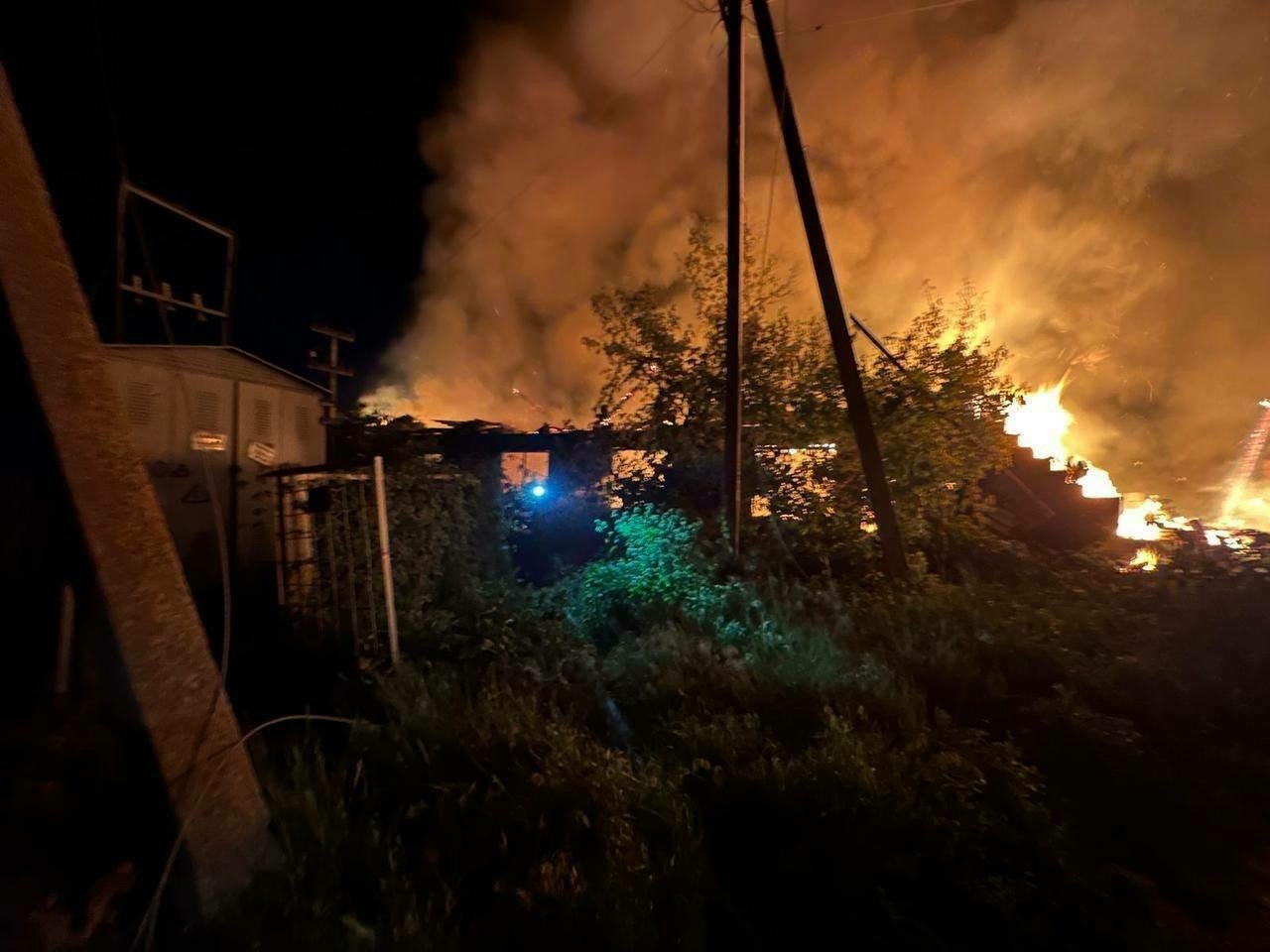
-
Ukraine’s ACCURACY is disrupting Russia’s MILITARY production – Zelenskyy
-
Ukraine brings WAR BACK to the aggressor’s territory! Drones STRIKE Russia again #shorts
-
Ukraine war latest: Ukraine shoots down nearly 500 drones, missiles in Russian record strike, Air Force says
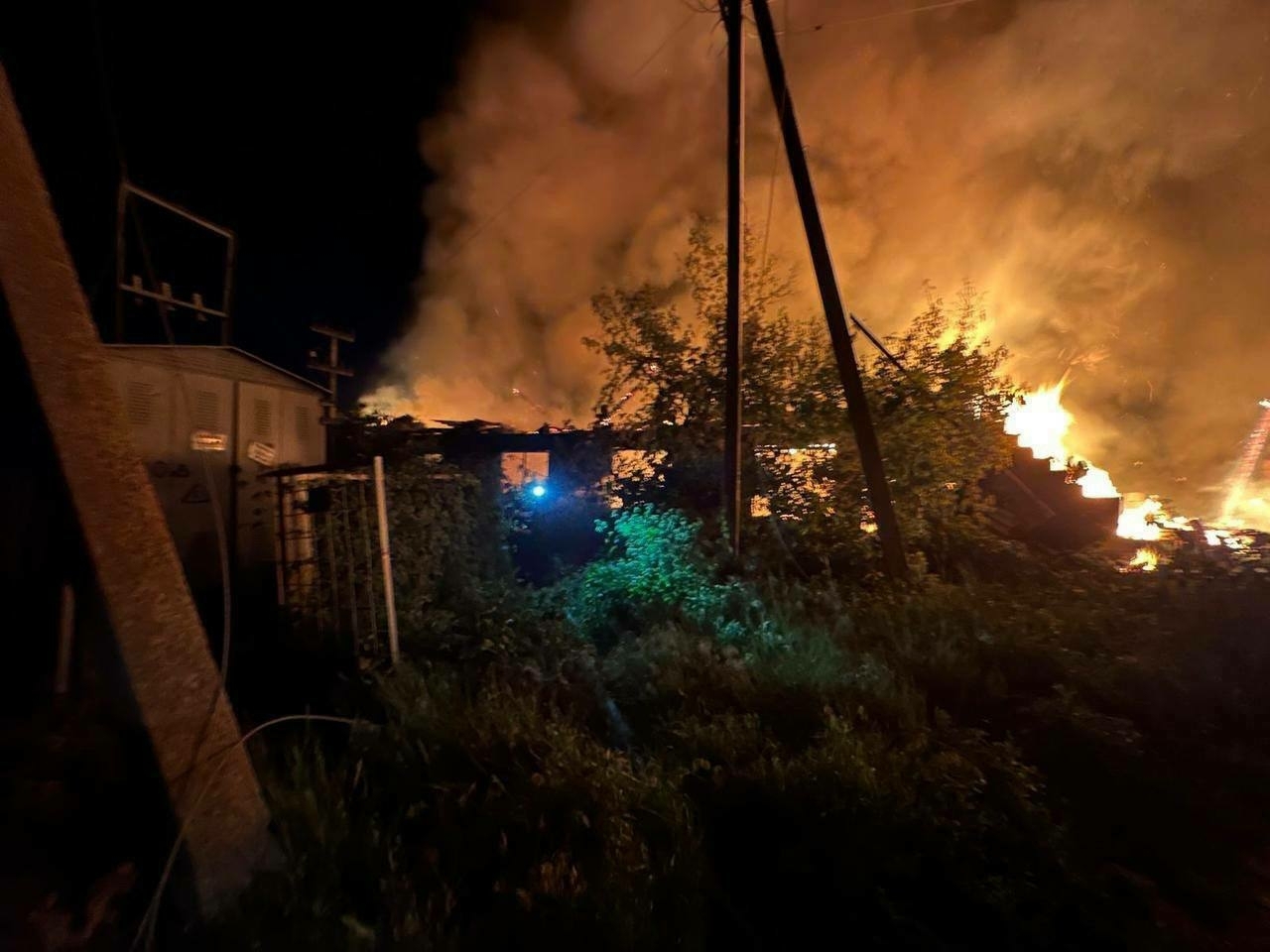
Key developments on June 9:
- Ukraine shoots down nearly 500 drones, missiles in Russian record strike, Air Force says
- Ukraine begins new major prisoner exchange with Russia
- Russia claims offensive in Dnipropetrovsk Oblast aimed at creating ‘buffer zone,’ Ukraine denies reports of incursion
- Putin approves new naval strategy as Russia seeks to restore maritime power
- Ukraine says it hit military aircraft, electronic warfare facility in Russia
Ukraine’s Air Force said on June 9 that it intercepted a total of 479 Russian drones and missiles during a record-high wave of strikes overnight.
According to the official statement, Russia launched 499 weapons, including 479 Shahed‑type attack drones and various decoy drones, four Kh‑47M2 “Kinzhal” air-launched ballistic missiles, 10 Kh‑101 cruise missiles, three Kh‑22 cruise missiles over the Black Sea, two Kh‑31P anti‑radar missiles, and one Kh‑35 cruise missile from occupied Crimea.
Ukraine had reportedly neutralized 479 of the incoming targets, with 292 shot down and 187 jammed or lost via electronic warfare.
The main target of the Russian attack was one of Ukraine’s airfields, Ukraine’s Air Force spokesperson Yurii Ihnat said on national television, without specifying the location or the strike’s impact on the facility.
The spokesperson called the June 9 attack “one of the largest that Russia has launched against Ukraine in recent times” and praised the Ukrainian air defense.
“Of course, there are also hits. We won’t specify in which locations, but with the number of missiles and drones that Russia is launching, it is impossible to shoot down everything,” Ihnat added.
Russia makes a year’s worth of NATO ammunition in 3 months, Rutte says“The capabilities of Putin’s war machine are speeding up, not slowing down,” NATO Secretary General Mark Rutte said.The Kyiv IndependentKateryna Hodunova
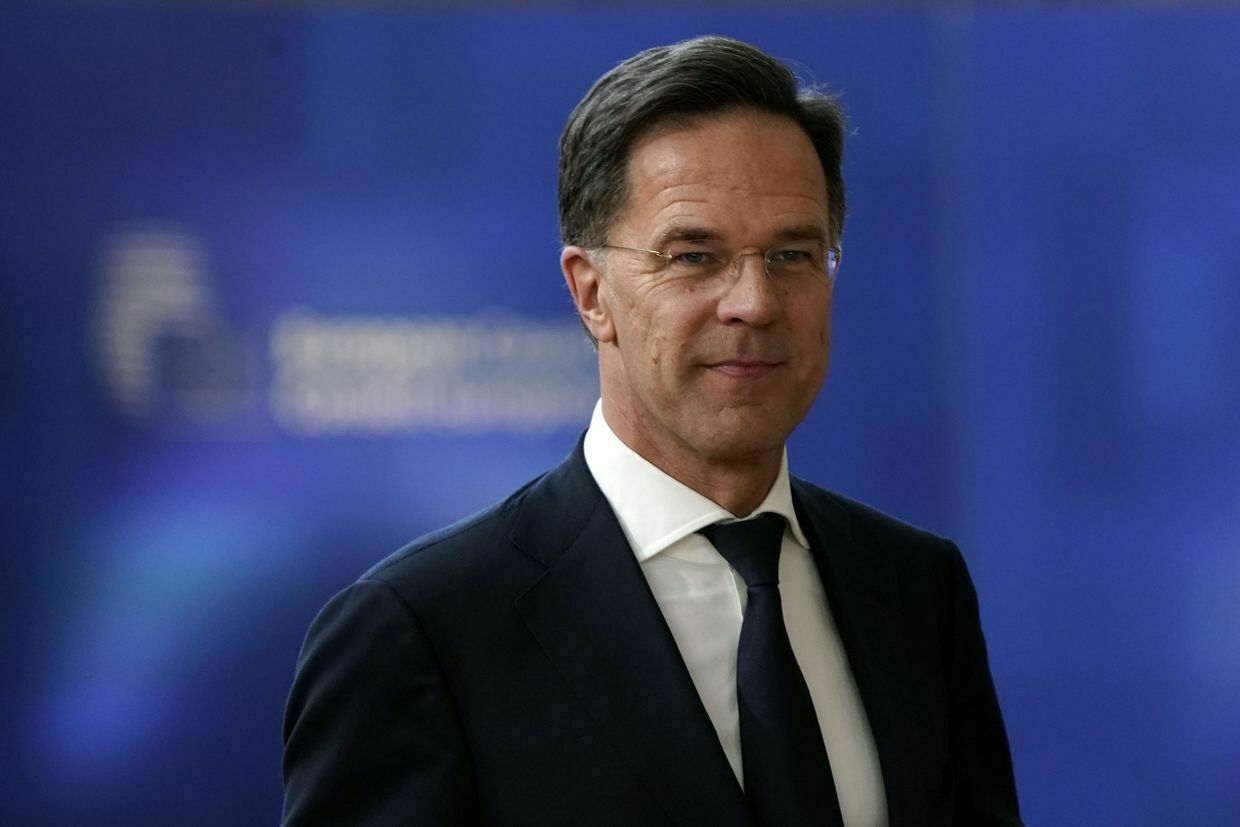
Ukraine begins new major prisoner exchange with RussiaUkraine has begun a large prisoner exchange with Russia as part of a deal reached during recent peace talks in Istanbul, President Volodymyr Zelensky confirmed on June 9.
“Ukrainians are coming home from Russian captivity,” Zelensky said in a statement. “Today, the exchange began and will continue in several stages over the coming days. Among those being returned now are wounded and severely wounded prisoners, as well as those under 25."
The swap marks the first stage of the agreement negotiated at the second round of direct Russia-Ukraine peace talks in Istanbul on June 2.
The Coordination Headquarters for the Treatment of Prisoners of War said the first group of released prisoners includes personnel from Ukraine’s Navy, Ground Forces, Air Force, National Guard, Border Guard Service, Territorial Defense, and State Special Transport Service.
Among those freed are defenders of Mariupol who had spent more than three years in captivity. All those returned in this stage are enlisted and noncommissioned soldiers, officials said.
“Most of those returned were captured in the first days of Russia’s full-scale invasion in 2022,” Ukraine’s Human Rights Ombudsman Dmytro Lubinets said.
Lubinets said his office monitored the exchange on the ground to ensure respect for human rights under the Geneva Convention and helped freed Ukrainians contact their families.
"We warmly welcome all who can now breathe the air of their homeland after years of captivity," Lubinets said. "Our team shares in the joy of the families who received that precious and long-awaited call."
The ongoing exchange covers specific categories — soldiers under 25, the severely wounded, and seriously ill prisoners — and Ukraine continues to work to repatriate the bodies of fallen servicemembers, according to the General Staff.
Ukrainian officials did not disclose the total number of POWs freed on June 9, citing security reasons. Ahead of the exchange, Zelensky had said Ukraine aimed to bring home 500 prisoners in the June 7-8 swap, which ultimately did not take place as scheduled.
June 9 swap comes after Kyiv denied Russian claims that it had delayed the planned June 7-8 exchange. Russian negotiator Vladimir Medinsky had accused Ukraine of postponing the swap indefinitely. Ukrainian officials dismissed this as disinformation.
Russia claims offensive in Dnipropetrovsk Oblast aimed at creating 'buffer zone,' Ukraine denies reports of incursionRussian forces are conducting their offensive in Ukraine's Dnipropetrovsk Oblast as part of efforts to create a "buffer zone" on Ukrainian territory, Kremlin spokesperson Dmitry Peskov said on June 9, according to Russian state-controlled media.
Peskov's comments allude to Russia's claims that the neighboring Ukrainian Donetsk Oblast belongs to Moscow. The claim is based on Russia's proclaimed annexation of the region in September 2022.
Kremlin spokesperson comments follow weeks of renewed Russian advances in Donetsk Oblast and President Vladimir Putin's May 22 statement that Moscow is working to establish a "security buffer zone" along Ukraine's borders with Kursk, Bryansk, and Belgorod oblasts.
Ukrainian officials denied Russia's latest claims of progress in Dnipropetrovsk Oblast.
"As of the morning of June 9, all Russian information, including Peskov's statements, about an offensive in Dnipropetrovsk Oblast does not correspond to reality," said Andrii Kovalenko, head of Ukraine's Center for Countering Disinformation.
Operational Command South reported on June 8 that Russian troops are continuing attempts to break into Dnipropetrovsk Oblast but described the situation as "tense" rather than indicating any successful advance.
The Russian Defense Ministry claimed on June 8 that its forces had entered Dnipropetrovsk Oblast. Ukrainian officials immediately rejected the assertion.
Viktor Trehubov, spokesperson for Ukraine's Khortytsia group of forces, also called the reports false, telling CNN that Russian forces had not advanced from the Pokrovsk or Novopavlivka directions, where the three oblasts of Donetsk, Zaporizhzhia, and Dnipropetrovsk converge.
Since 2014, Russian aggression has heavily impacted Donetsk Oblast, while Dnipropetrovsk Oblast has remained free from confirmed ground incursions. Ukraine rejected similar Russian claims in May, when officials debunked allegedly fabricated photos purportedly showing Russian troops in the region.
Despite this, Dnipropetrovsk Oblast has faced frequent Russian missile and drone attacks throughout the full-scale war. The region began mandatory evacuations from four front-line villages in April as a precaution.
Inside Russia, calls for peace come with conditions — and Kremlin talking pointsFollowing the second round of direct peace talks with Ukraine, the Russian side leaked its proposal on how to end its war — effectively a demand for Ukraine’s surrender. Yet, if the intentions of the Kremlin are no secret — continue the war until a political or military victory — getting information onThe Kyiv IndependentOleg Sukhov
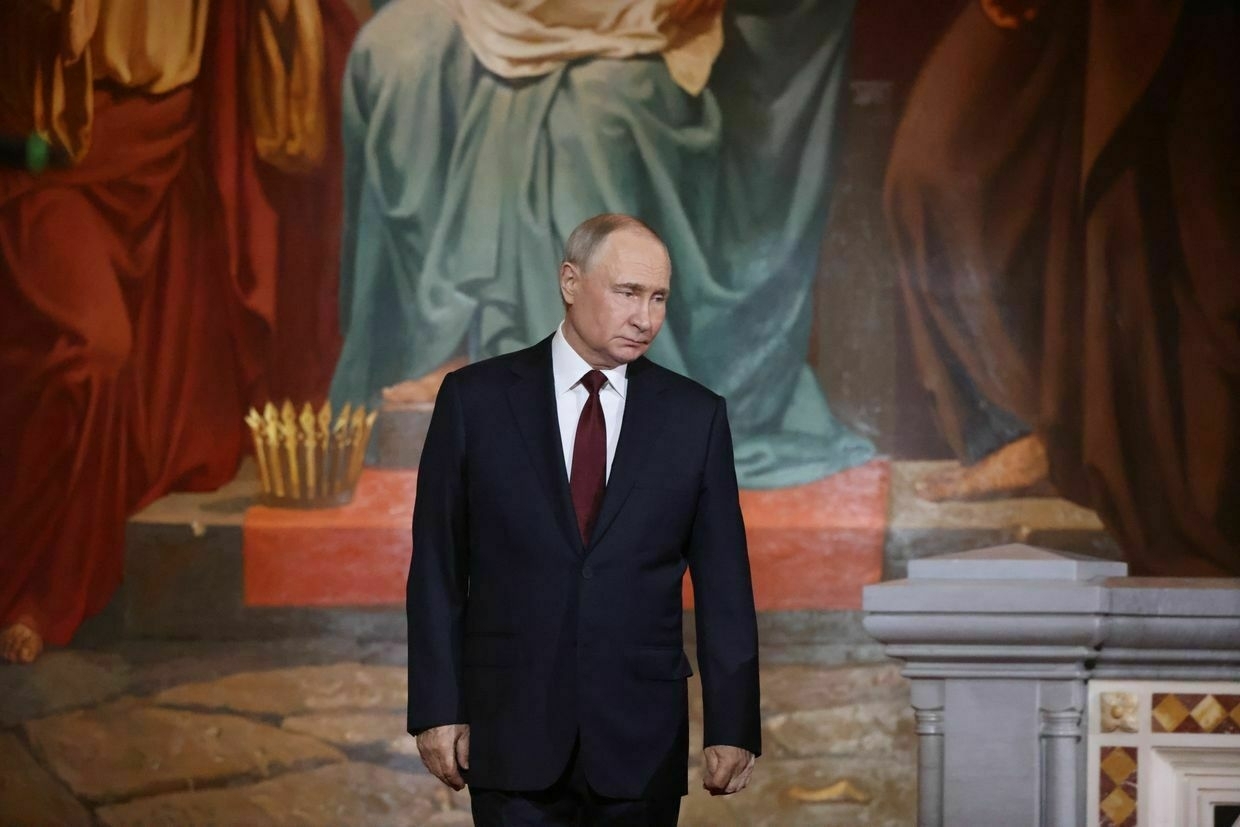
Putin approves new naval strategy as Russia seeks to restore maritime powerRussian President Vladimir Putin has approved a new naval strategy aimed at fully restoring Russia's position as a leading global maritime power, Kremlin aide Nikolai Patrushev said in an interview with the Russian state-controlled Argumenty i Fakty newspaper, published on June 9.
Patrushev, a former KGB officer, told the Russian newspaper that the new document, titled The Strategy for the Development of the Russian Navy up to 2050, was approved in late May.
"Russia's position as one of the world's greatest maritime powers is gradually recovering," Patrushev said. He added that such work requires a long-term vision of future maritime challenges and threats.
Patrushev provided no further details on the new naval strategy.
Russia currently operates the world's third most powerful navy, according to most public rankings, behind China and the United States. However, the fleet has suffered a string of losses during the war against Ukraine, particularly in the Black Sea.
Exclusive: Russia’s ballistic missile production up at least 66% over past year, according to Ukrainian intel figuresRussia’s production of ballistic missiles has increased by at least 66% over the past year, according to data from Ukraine’s military intelligence (HUR) shared with the Kyiv Independent. According to data obtained by HUR, Moscow is now producing 60 to 70 Iskander-M — the ballistic version of the missile — and 10The Kyiv IndependentKollen Post
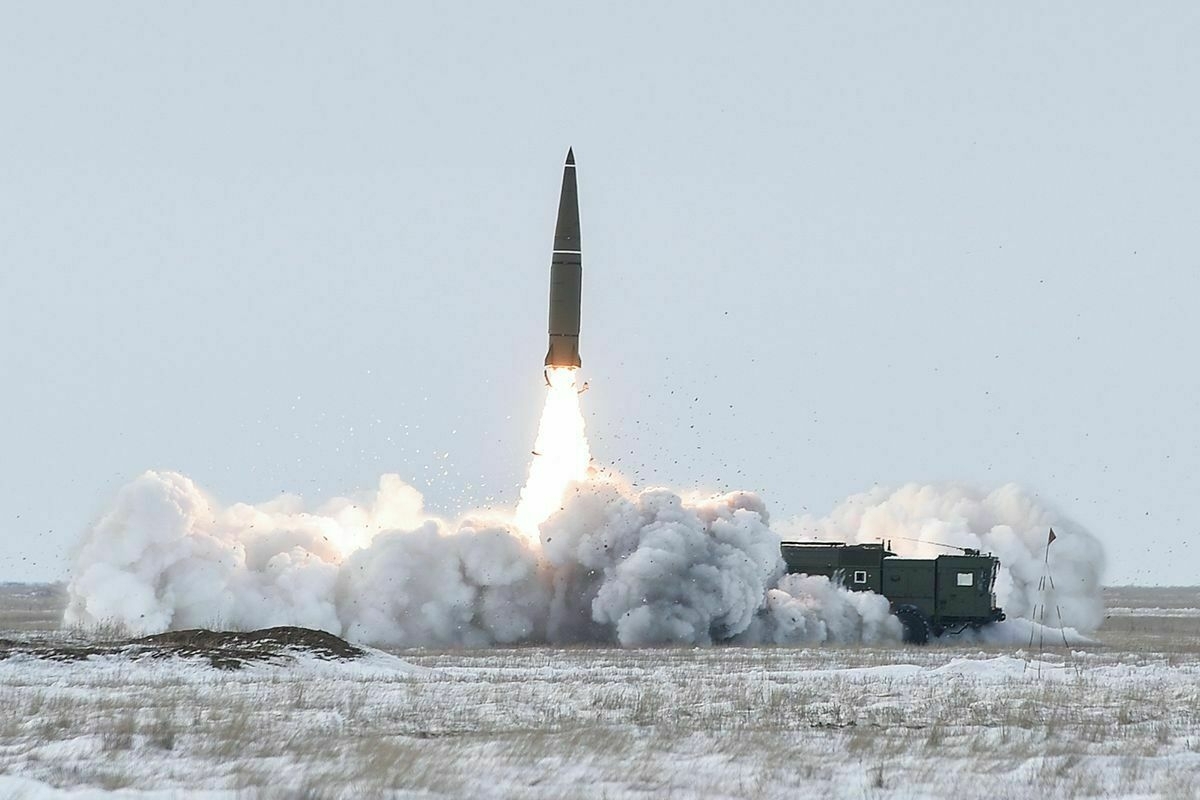
Ukraine says it hit military aircraft, electronic warfare facility in RussiaUkraine damaged two Russian military aircraft — a MiG-31 and either a Su-30 or Su-34 fighter jet, as well as struck the JSC VNIIR-Progress facility in the Russian city of Cheboksary in the Chuvashia Republic, the General Staff of Ukraine's Armed Forces said on June 9.
Ukrainian drone units, in coordination with other units, targeted VNIIR-Progress and ABS Electro in Cheboksary overnight as part of efforts to degrade Russia's capacity to produce air attack systems.
The targeted facilities are part of Russia's military-industrial complex and produce adaptive Kometa antennas, used in Shahed-type attack drones, planning and correction modules for guided aerial bombs (KAB), and other precision-guided weapons, the General Staff said.
The Ukrainian military confirmed that at least two drones struck the site, causing a large fire. The results of the strike are still being assessed.
Ukraine's overnight strike also targeted the Savasleyka airfield in Russia's Nizhny Novgorod Oblast, which the Kremlin uses to launch MiG-31K jets armed with Kinzhal hypersonic missiles, according to the General Staff.
The operation was conducted by Ukrainian Special Operations Forces in coordination with other units.
Note from the author:
Ukraine War Latest is put together by the Kyiv Independent news desk team, who keep you informed 24 hours a day, seven days a week. If you value our work and want to ensure we have the resources to continue, join the Kyiv Independent community.
-
New Ukrainian school helps the displaced build new lives through hospitality

In a luxurious resort complex north of Kyiv, 12 women are retraining to enter the hospitality sector in a new school that will kickstart a fresh life for Ukraine’s internally displaced people (IDPs).
The women, mostly from Ukraine’s occupied territories, are learning to be housekeepers in the first program organized by German-born non-profit school Grains. Unlike other hospitality schools in Ukraine, Grains also focuses on the personal development of students, and they are guaranteed a job with the Shelest hotel after they complete nine days of training.
Grains is the brainchild of Berlin-based venture developer Maddina Katter and Elena Muradyan, CEO of Shelest, a luxury hotel that opened in 2020. They hope to address two challenges: integrating some of the approximately 5 million internally displaced persons (IDPs) and addressing a workforce deficit in the hospitality sector, which has boomed since the full-scale invasion due to rising domestic tourism.
Integrating IDPs is a top priority for Ukraine’s Social Protection Ministry, and the ministry found 30% of Grains' applicants. The ministry said it would help Grains secure more funding if at least two IDP students entered employment afterwards.
“The government needs us,” Katter told the Kyiv Independent.

Instructor speaks with students during a session at the Grains hospitality school for internally displaced people at the Shelest hotel in Kyiv Oblast, Ukraine, on May 22, 2025. (Fabian Kaluza / Grains) “Until today, there is no project in Ukraine that directly connects education and employment, and also works with the personal (development) of students.
“Students will never pay for the school, made possible thanks to partners who will provide the 180,000 euros ($205,000) needed annually. The main donor is German defense company ARX Robotics, which initially invested 25,000 euros ($28,000) into the non-profit company.
“It’s a blueprint that we want to develop in the future.”
Shelest, owned by one of Ukraine's top investment bankers, Ihor Mazepa, covers operational costs, including bussing students to school from Kyiv, food and drinks, plus bookkeeping and HR. The school, a trendy Scandinavian-style building constructed with wood and glass, is nestled into the Shelest resort and connects to the restaurant where students train.
It's a win-win, Katter said. Shelest gets qualified staff, IDPs get jobs, and the state receives taxes and spends less on support programs.
In the future, Grains will include other programs like bar and restaurant work, and partner with other high-end hotels offering good salaries and benefits. The courses are open to all Ukrainians, but Katter wanted the first one to be geared toward women.
In wartime Ukraine, a university grows — and reclaims a space once reserved for the corruptOnce the playground of disgraced Ukrainian politicians, a golf club in Kyiv’s Soviet-era Obolon neighborhood is now set to become the new campus of the Kyiv School of Economics, which last month bought the site for $18 million as part of a $40 million investment — the largest private investmentThe Kyiv IndependentLiliane Bivings
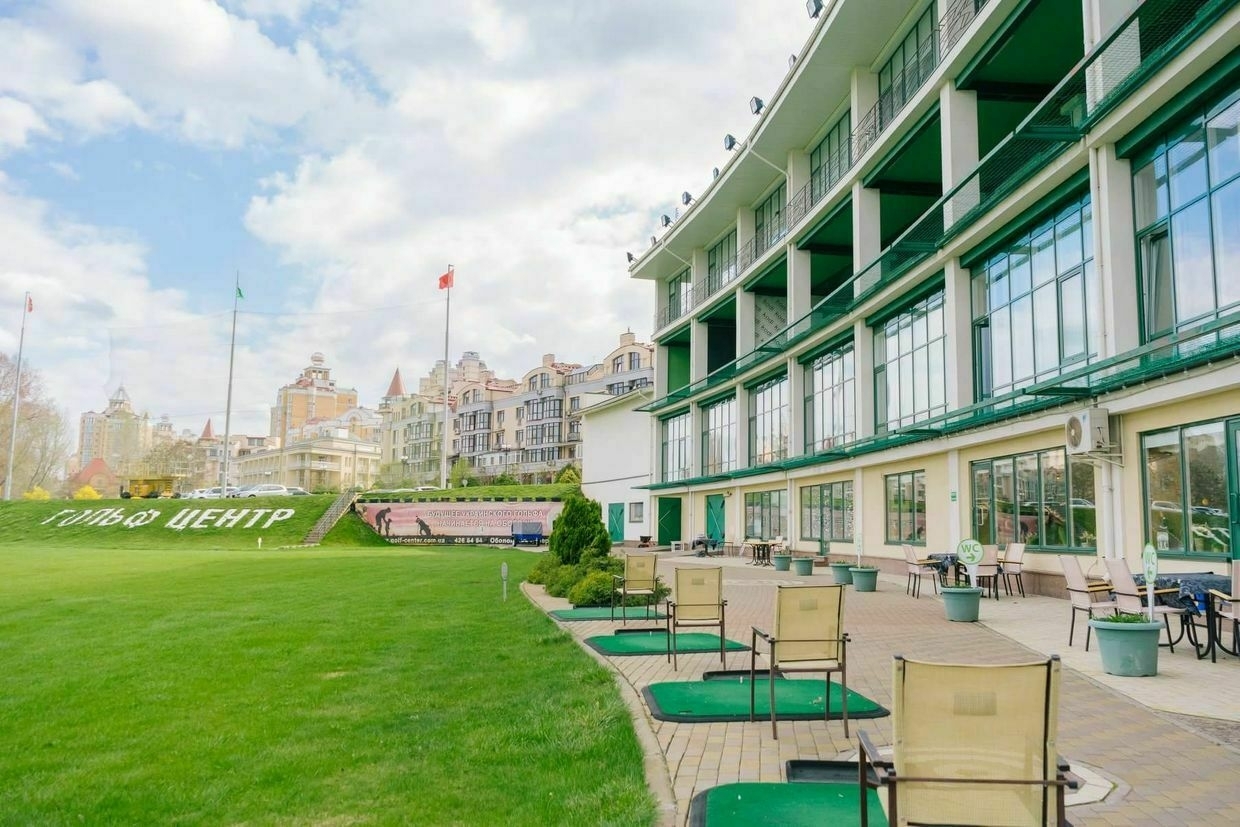
New thinkingThe idea for Grains came to Katter over two years ago in Berlin when she met Muradyan, who had fled Ukraine with her daughter. Katter had already set up the company Bulletproof Ukraine, making affordable bulletproof vests for civilians, and wanted to create an educational project. When she heard Muradyan's struggles to find employees in the hotel industry, she realized hospitality would be the right path.
Salaries have increased in the sector, and housekeepers can earn Hr 1,400 ($35) daily in a hotel like Shelest, above the average salary in the country. Katter saw the opportunity for Grains to help reduce unemployment among IDPs in Ukraine, which is higher than among other citizens, and plug the workforce deficit.
"We want to show to the students that they can be creators of the reality they want to live in."
Alongside theoretical and practical classes, taught by senior staff at Shelest, Katter starts every eight-hour day with a personal wellness session at 10 a.m. This is not about mental health, she says, but helping students set and achieve personal goals and breaking free from something she believes plagues post-Communist countries – the Soviet mindset.
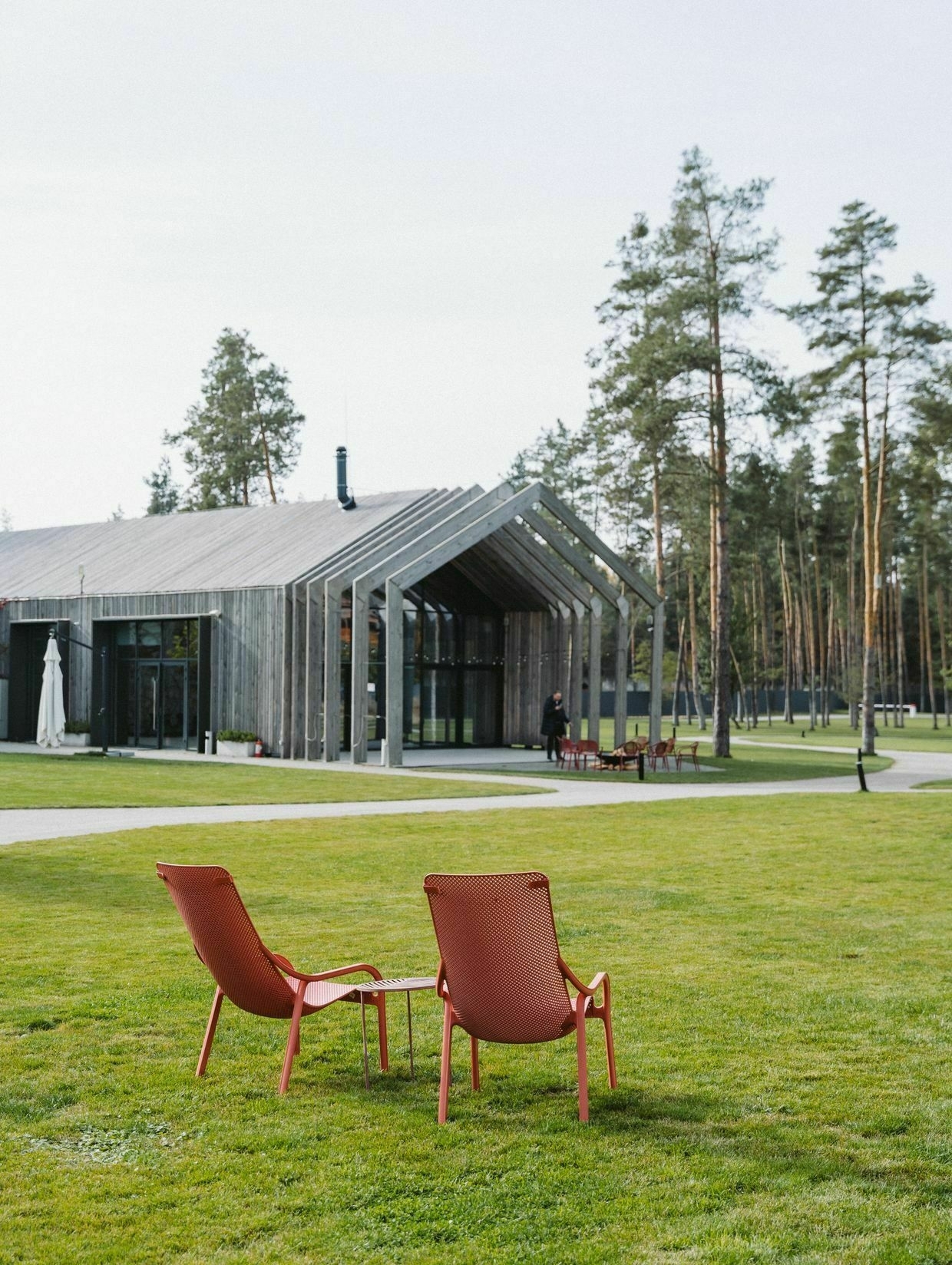

R: A building of the Shelest hotel in Kyiv Oblast, Ukraine, in an undated photo. L: A speaker addresses students during a session at the Grains hospitality school for internally displaced people, at the Shelest hotel in Kyiv Oblast, Ukraine, on May 13, 2025. (Madina Katter / Grains) Katter wants students to gain confidence and aim high in their careers. Grains sets out a path to progress in the hospitality industry, but the skills they learn are transferable to other jobs if students want to try something else.
"In the Soviet mindset, everyone is just confined to whatever life path is outlined for them. We want to show to the students that they can be creators of the reality they want to live in,” Katter said, adding that she also sees this issue in her homeland, Kazakhstan.
Blueprint for the futureFor now, Grains has space for maximum 20 people per course, and soon students will be able to stay in on-site dormitories. For the first program, the school interviewed 60 applicants and accepted 12 who the company felt were keen to remain in hospitality.
The first students graduated on May 23, and 95% went on to work at Shelest. The next program will launch at the end of July for housekeepers, while the team currently develops a culinary arts course with esteemed Kyiv chef Mirali Dilbazi.
One student, Tetiana Izorkina, originally from now-occupied Luhansk, saw the program advertised on Telegram, a messaging app. Stable and safe work is hard to find in her current town, Dobropillia, Donetsk Oblast, which is near the front line.
Her mother and grandmother initially thought Grains was a scam because it was free, an issue that Katter says will be solved once the company has a bigger presence and reputation. Fortunately for Izorkina, it wasn't, and she found herself in awe of the manicured lawns, flowerbeds, and contemporary art that decorates the resort.

Graduates of the first Grains hospitality school for internally displaced people pose with their certificates at the Shelest hotel in Kyiv Oblast, Ukraine, on May 22, 2025. (Fabian Kaluza / Grains) "In Donetsk Oblast, you only see gray colors. There are only soldiers around me, and you cannot see beautiful art. You only see dark," she said, adding how happy and emotional she felt to be on the course.
For Izorkina, hospitality will be one of the key industries when the war ends, as tourist numbers are expected to climb back to over 14 million per year. She wants to join those working in hotels, restaurants, and bars to welcome tourists with high hospitality standards.
In the long term, Ukraine is just the beginning, and Katter wants to take it worldwide. She sees Germany as the next country due to the high number of displaced people living there.
"What we are building right now in Ukraine is a start. It's a blueprint that we want to develop in the future. Grains needs to become a tool that works for people everywhere in the world," she said.
Note from the author:
Hi, it’s Dominic, thank you for reading this story. It’s not all doom and gloom in Ukraine, and I want to shine a light on some of the positive things happening during the war. The women I met on the course were incredible and inspiring. It takes a lot to completely start fresh in life, especially when you’ve had everything turned upside down. To help us keep bringing you good news from Ukraine, please consider becoming a member.


